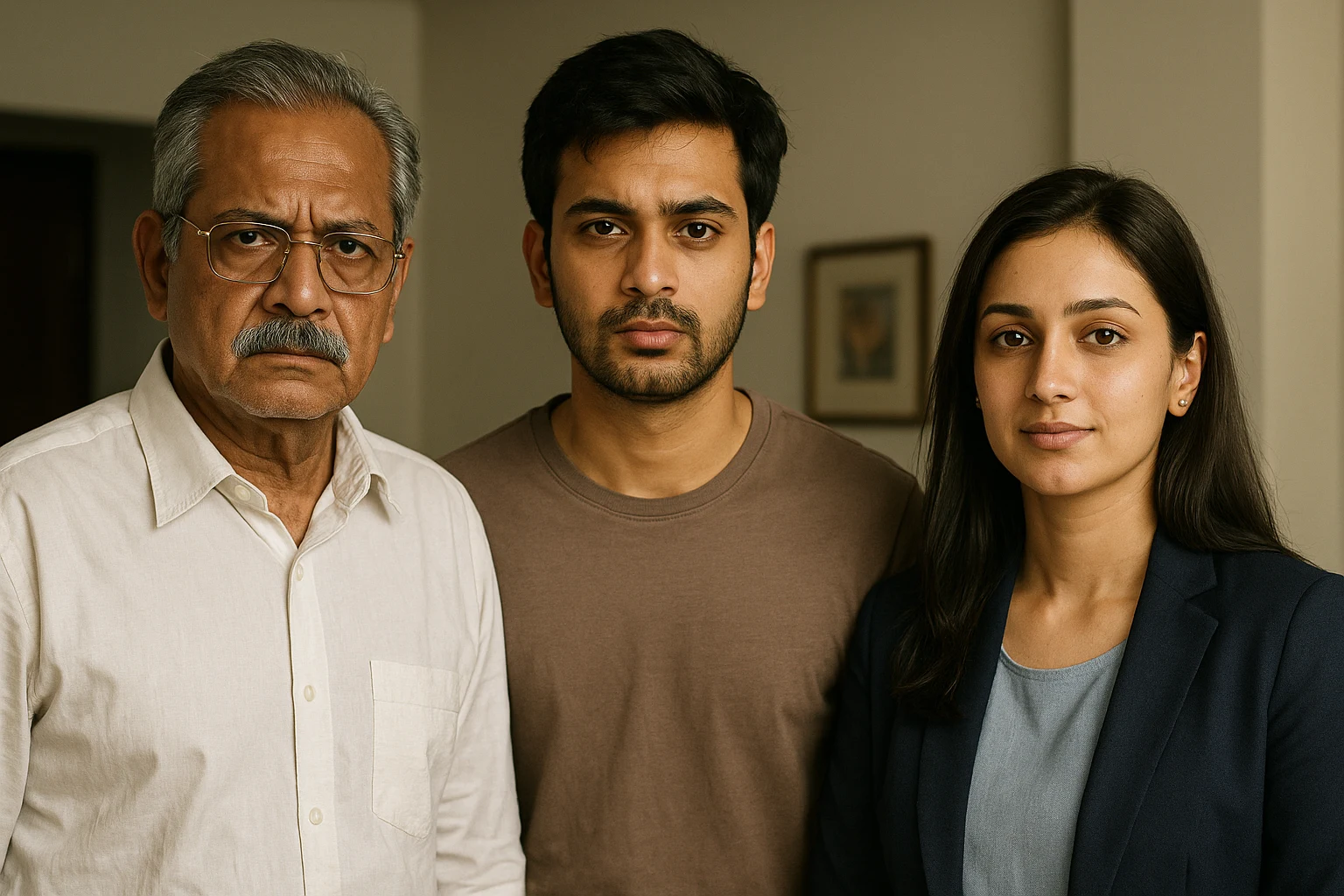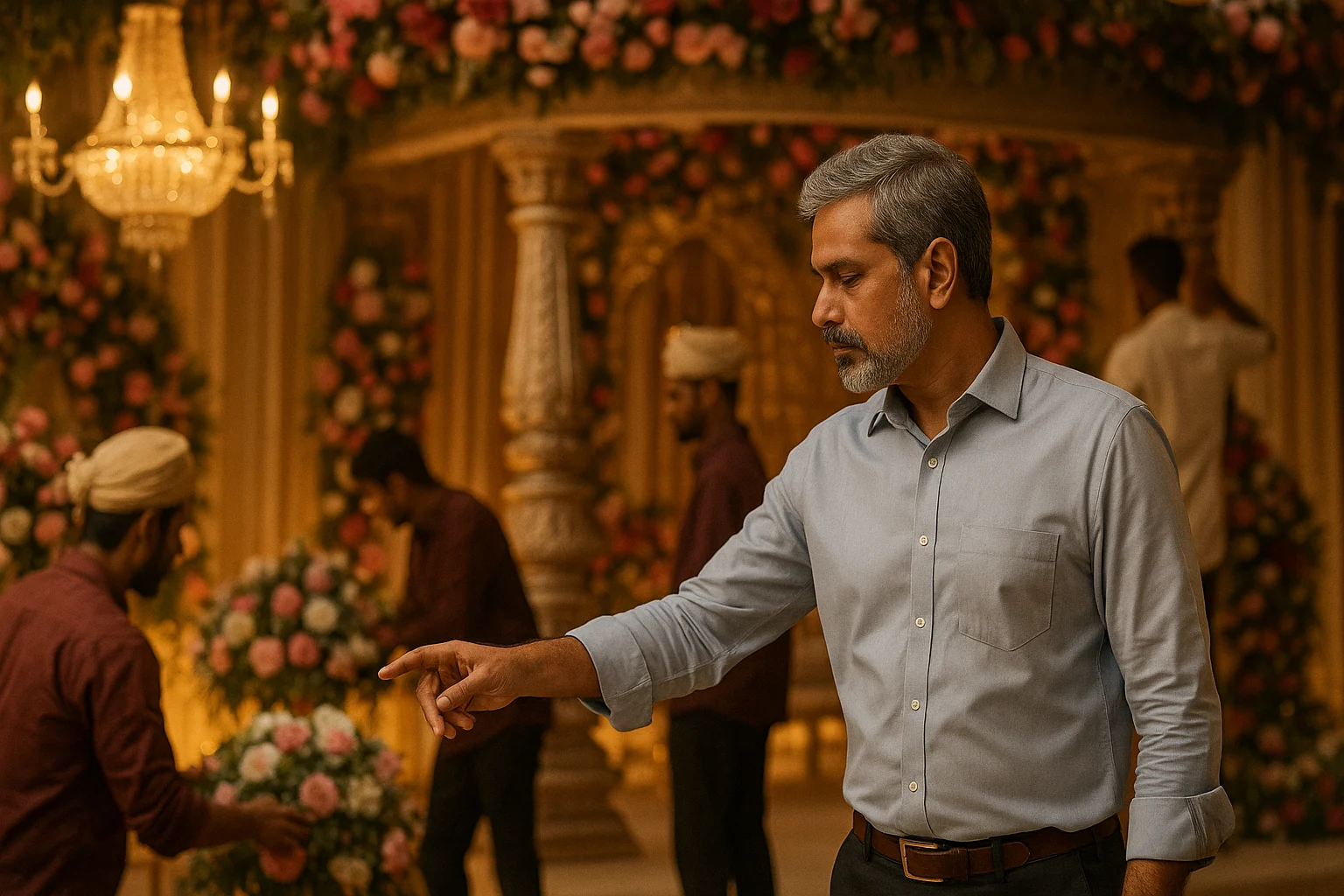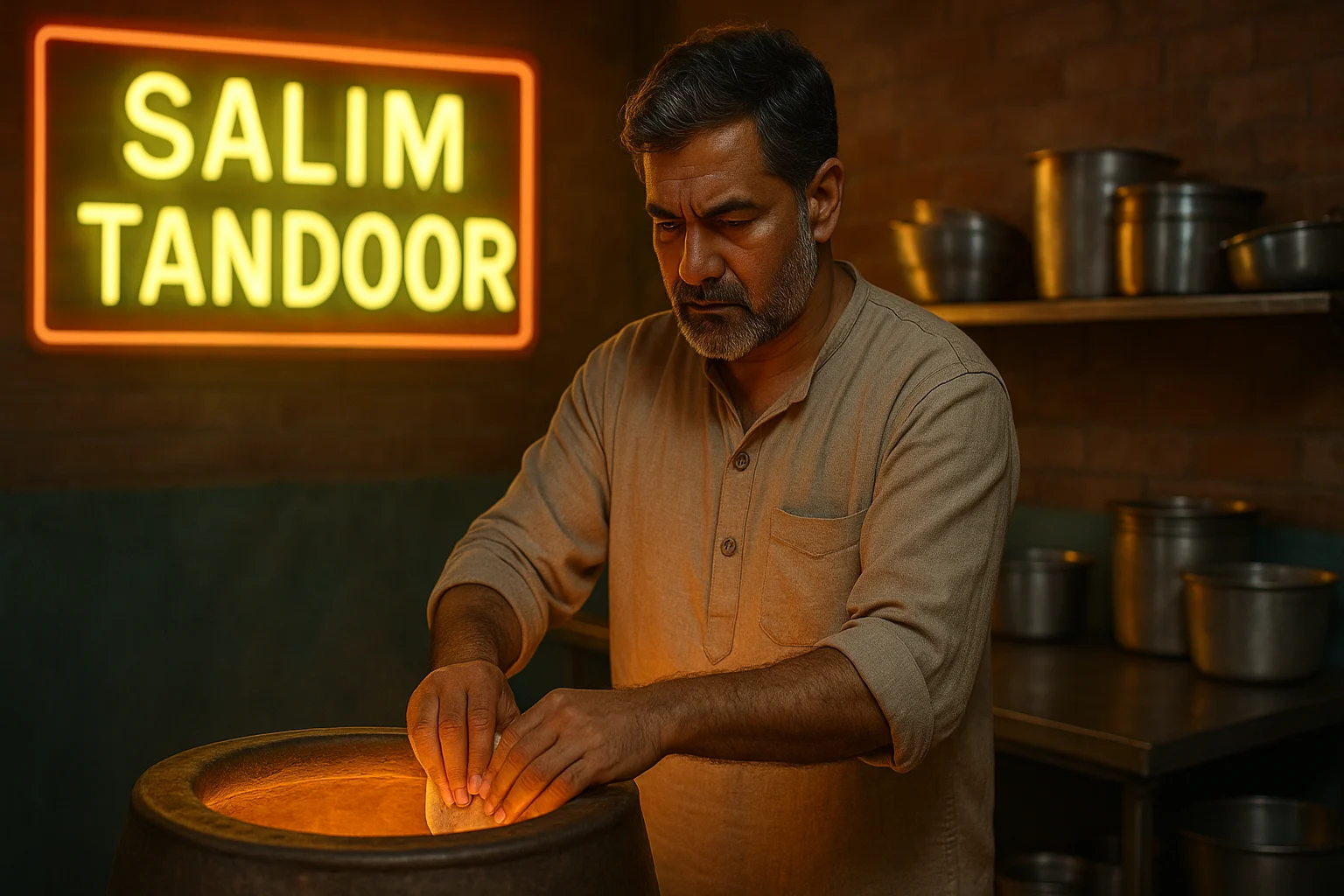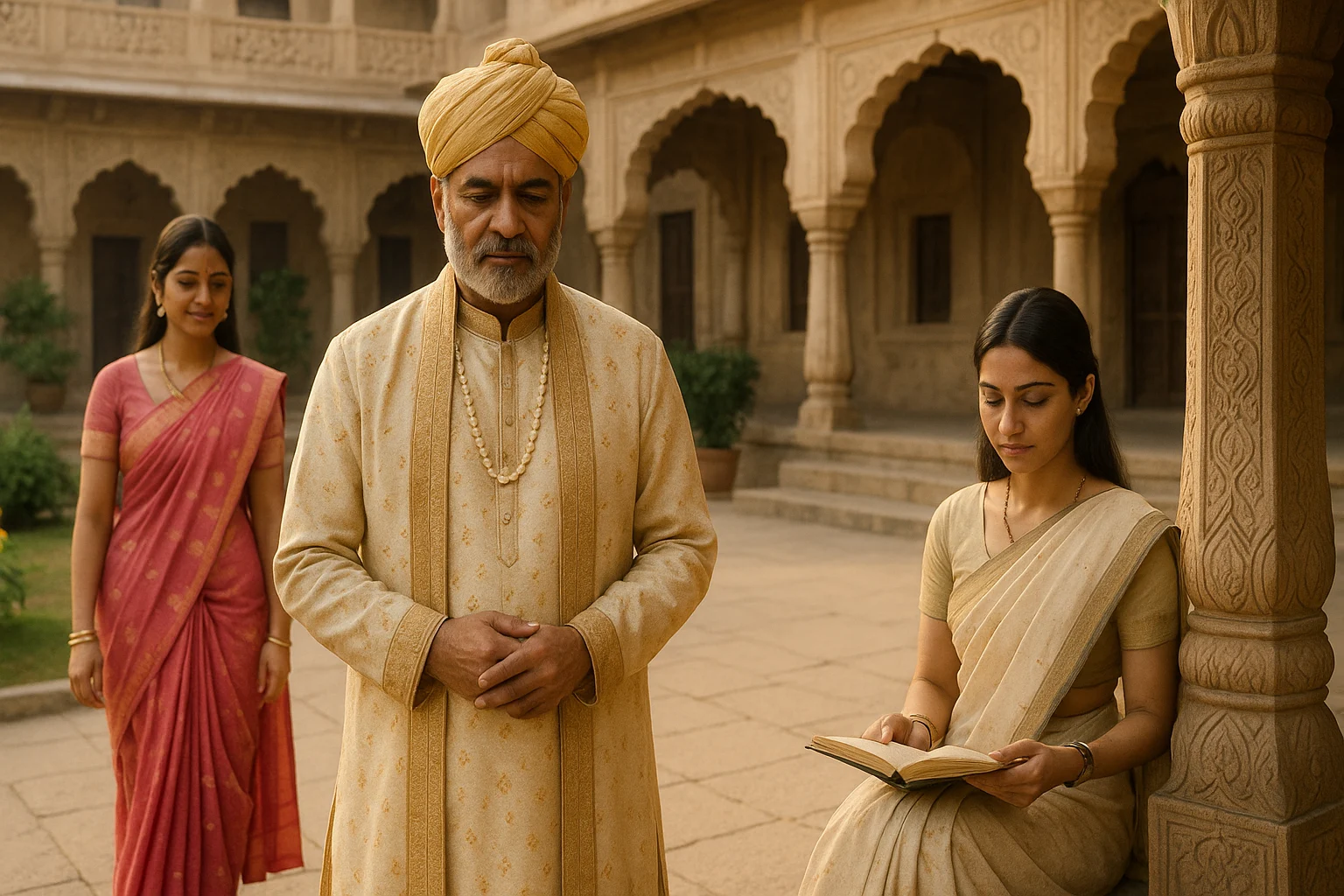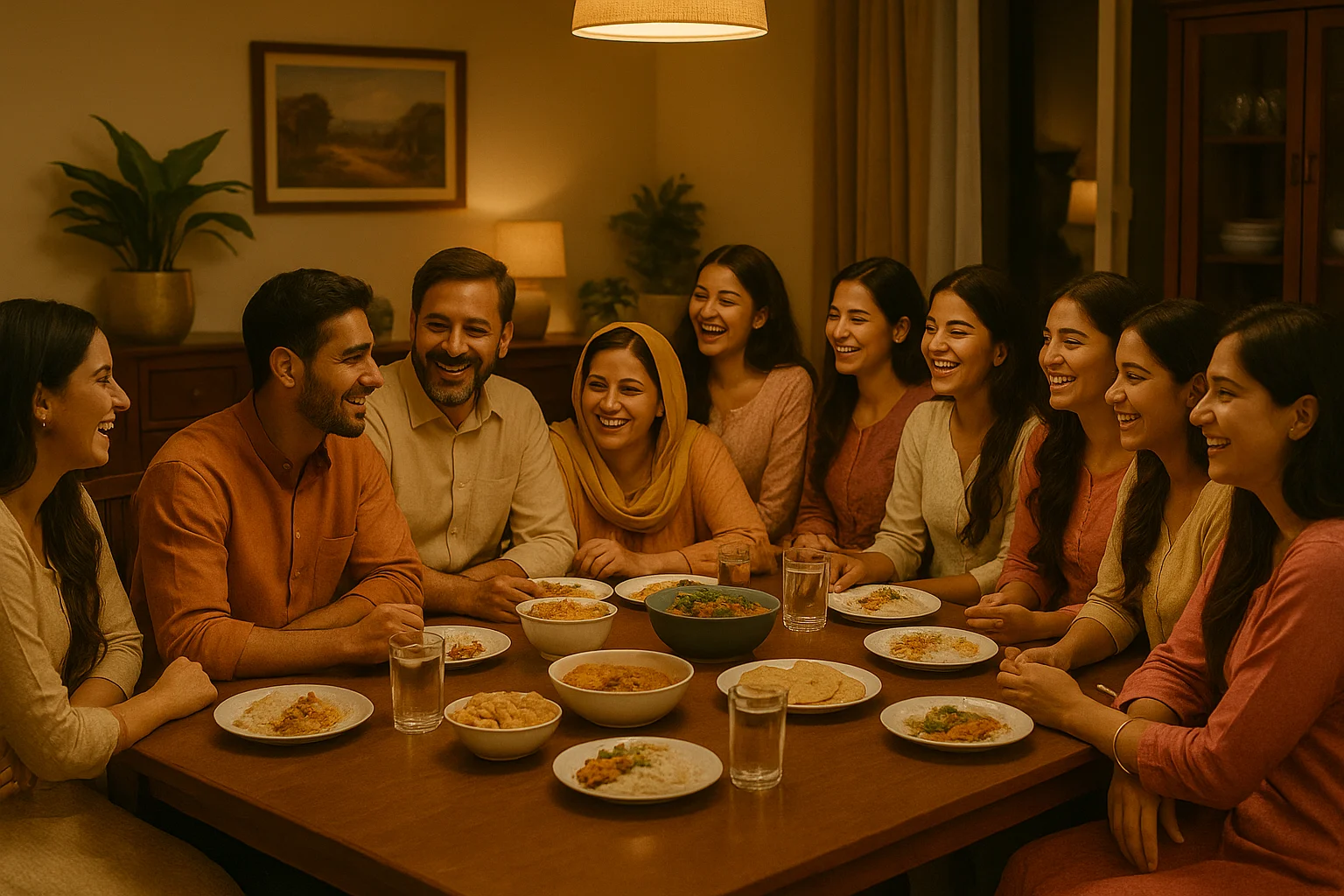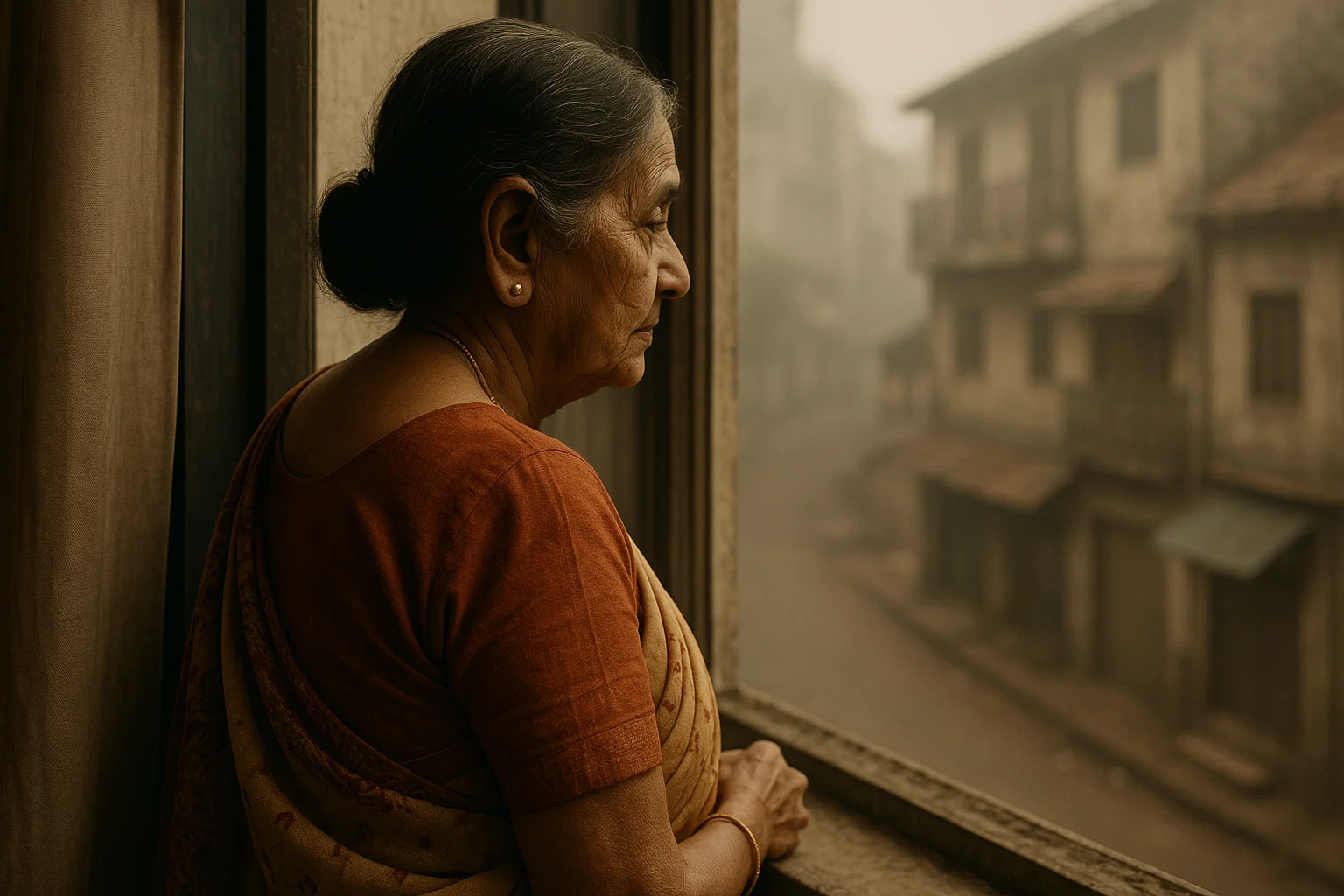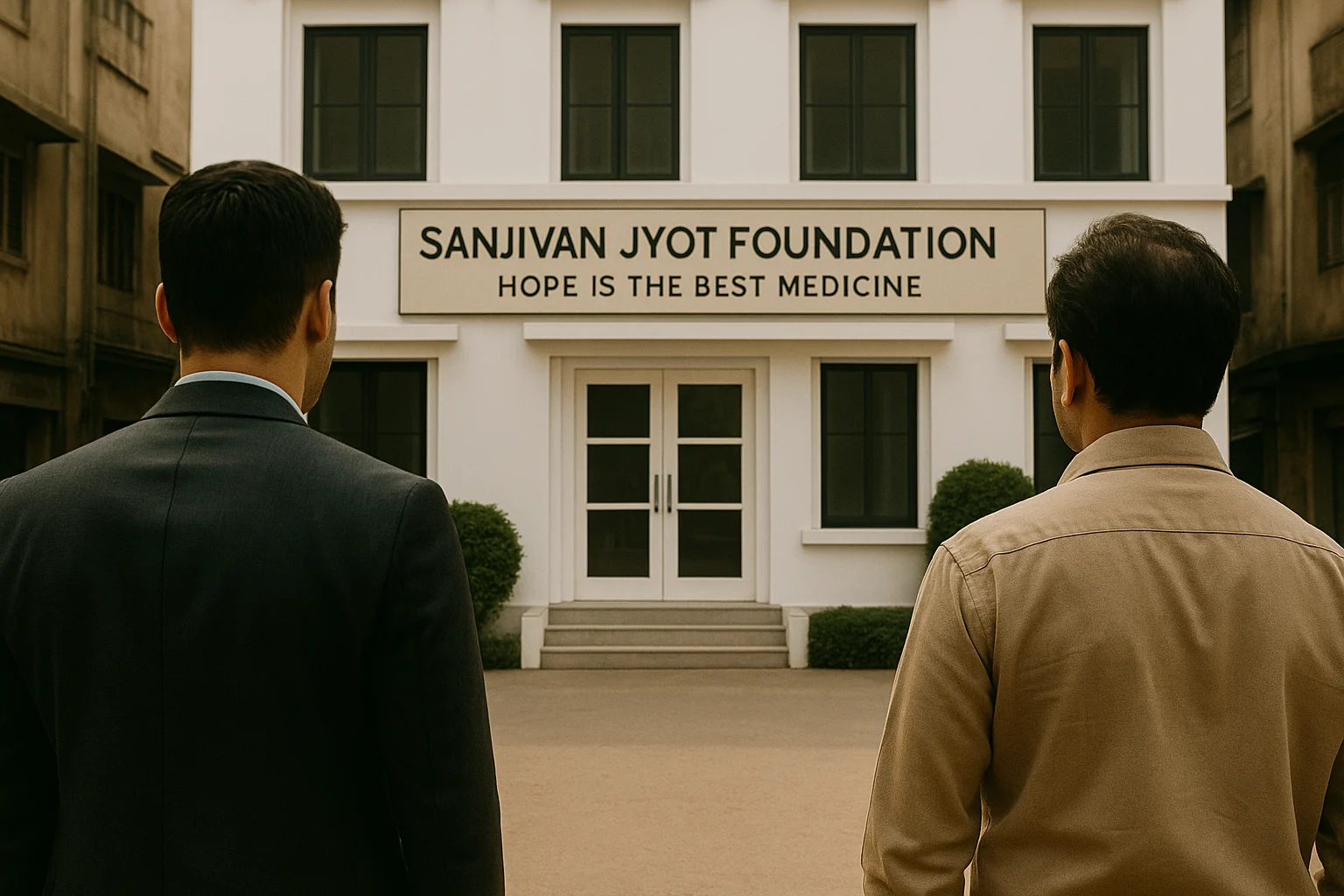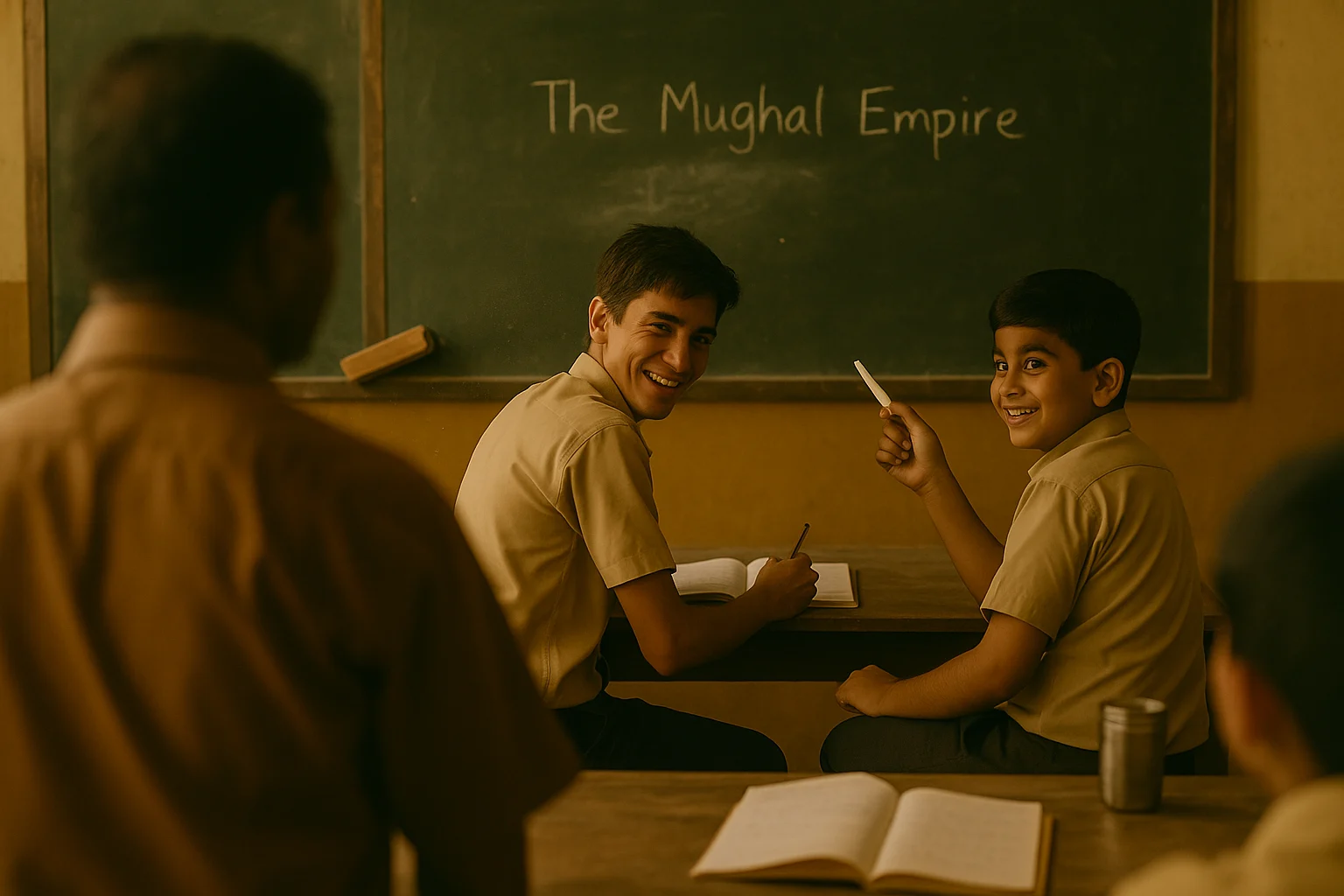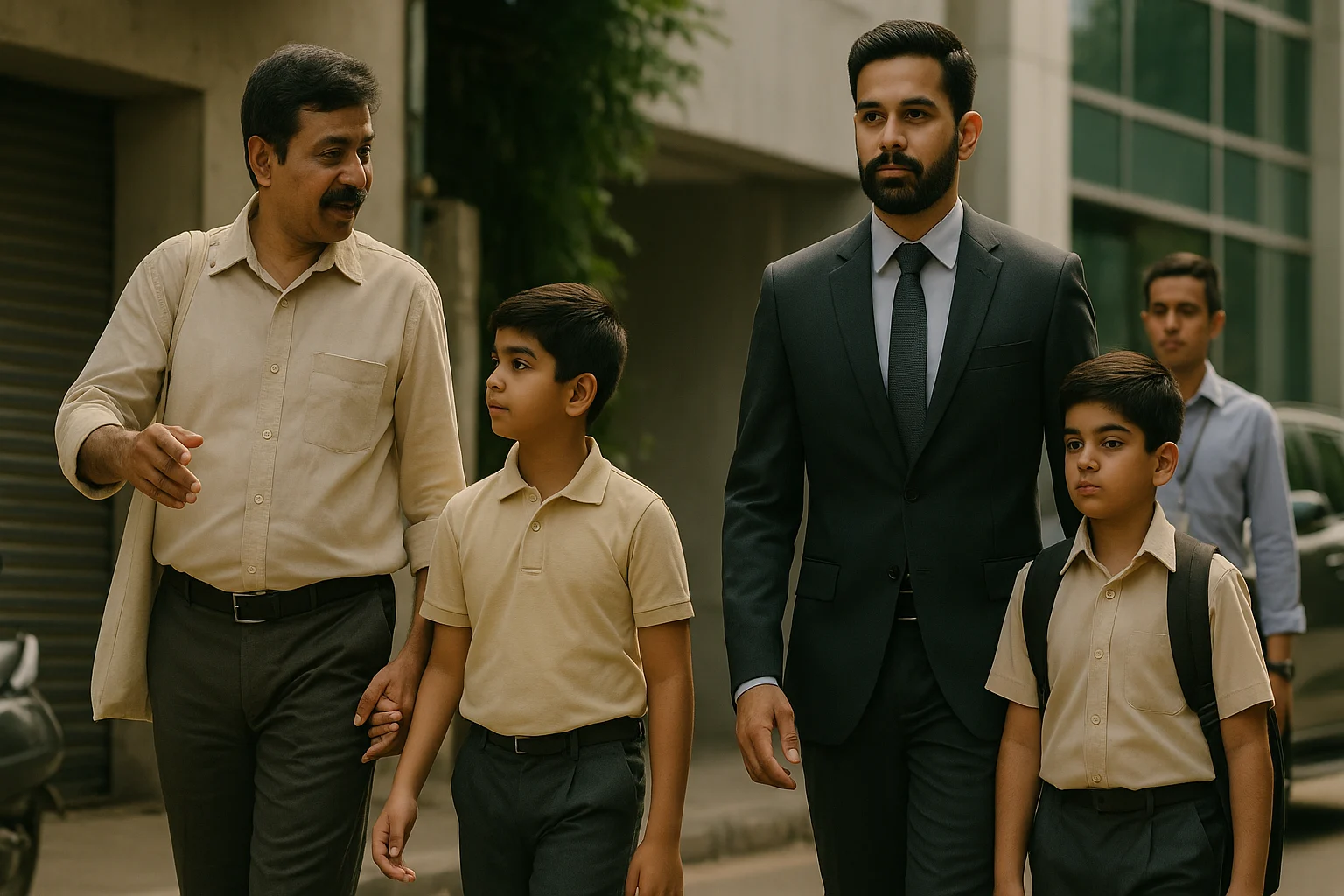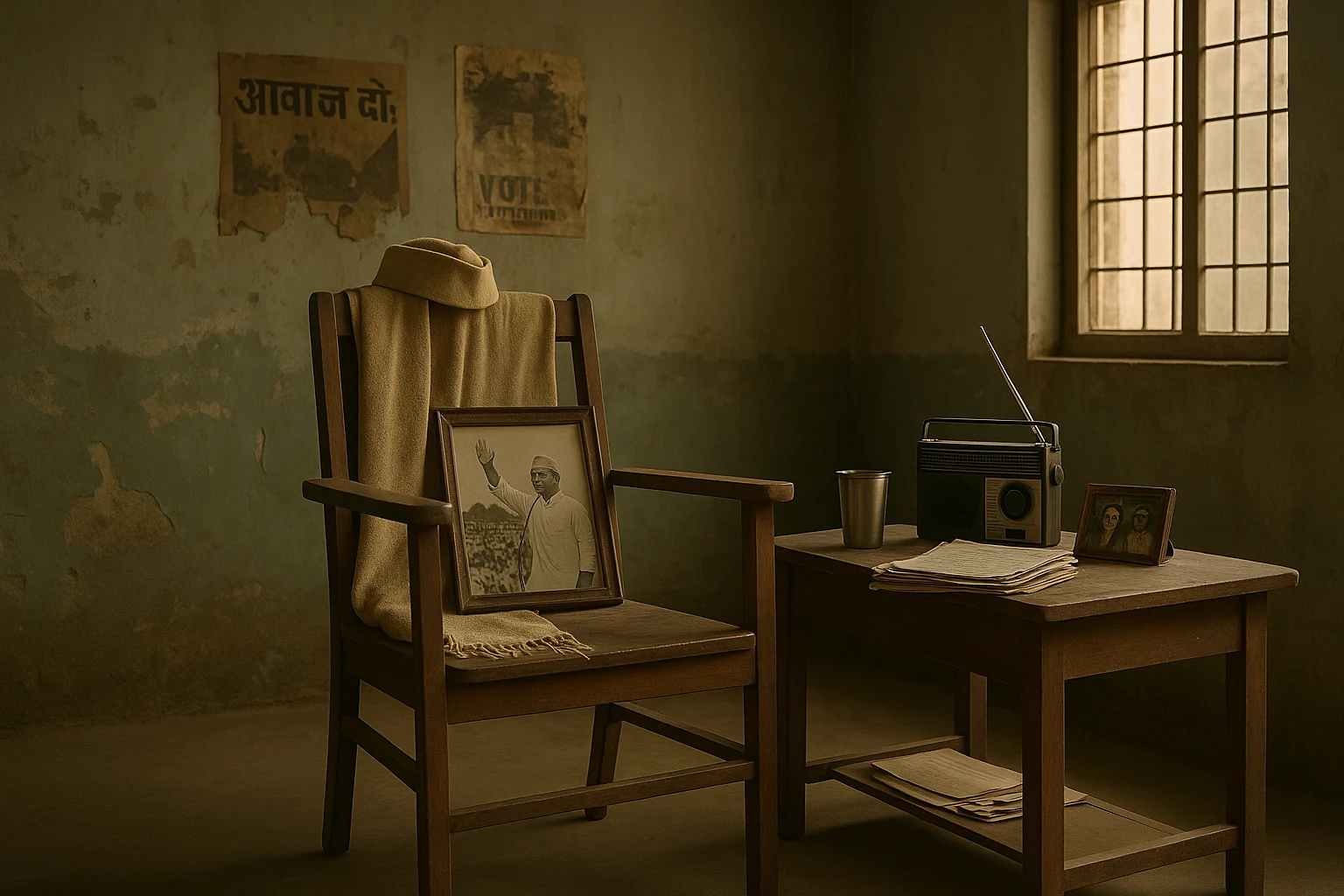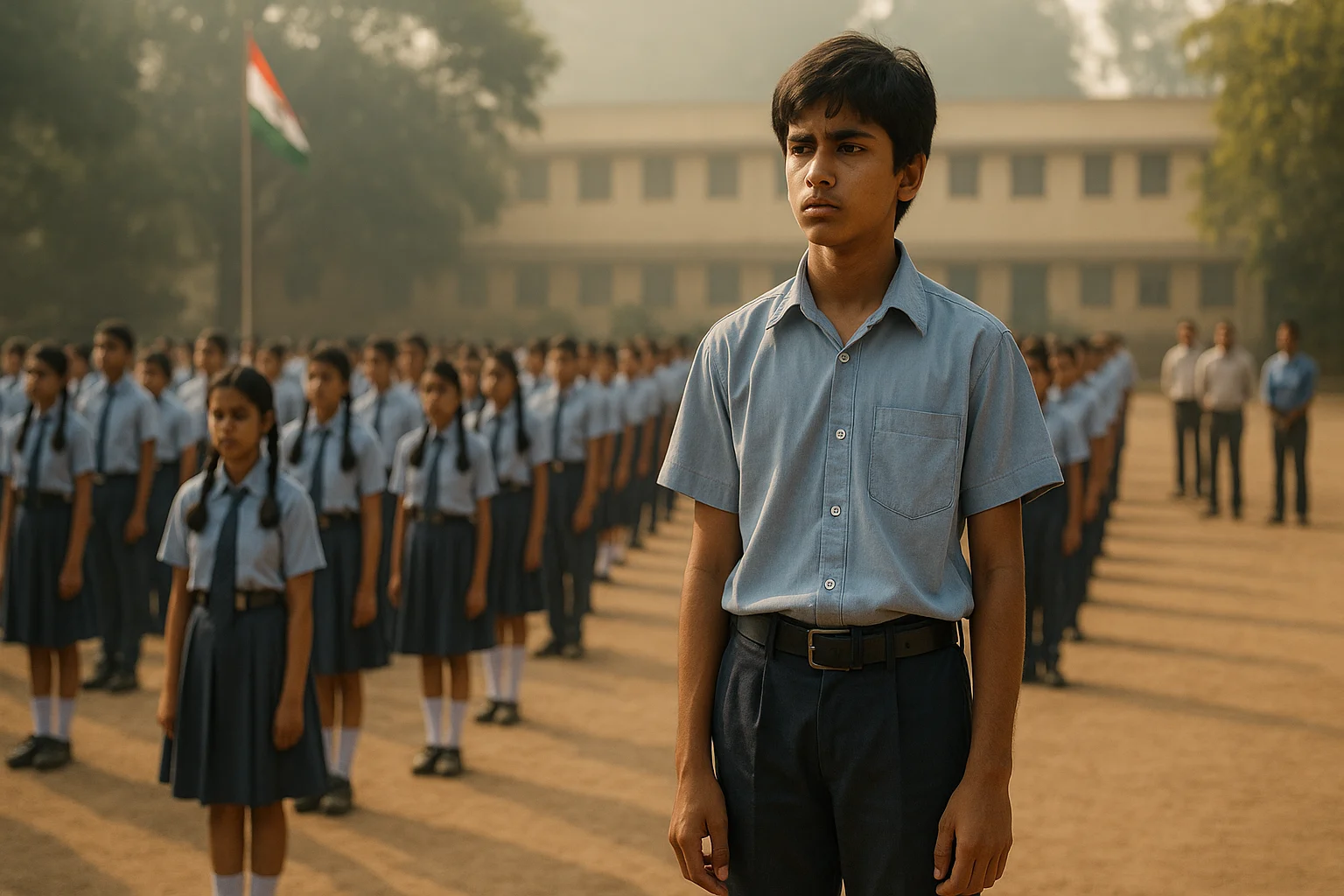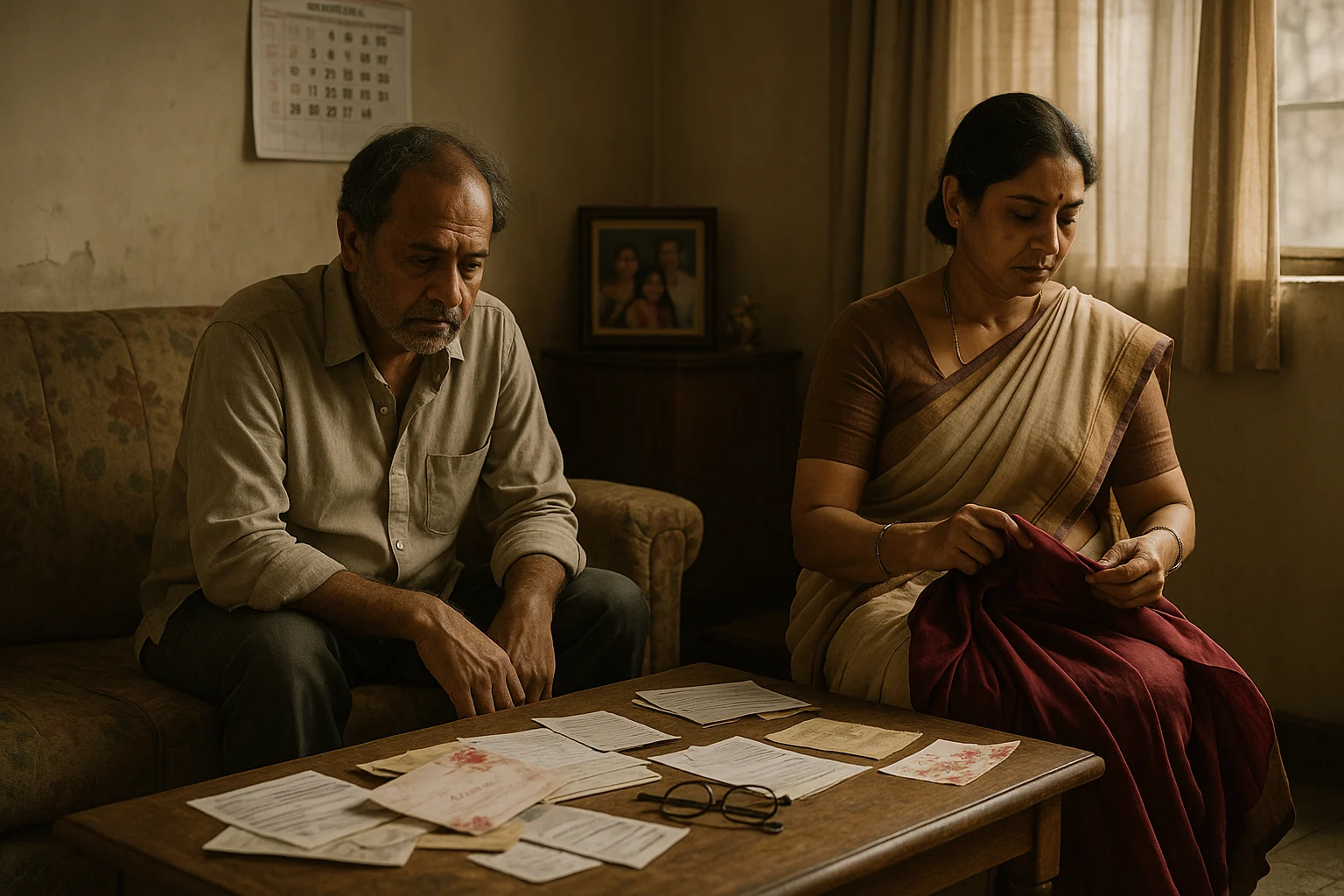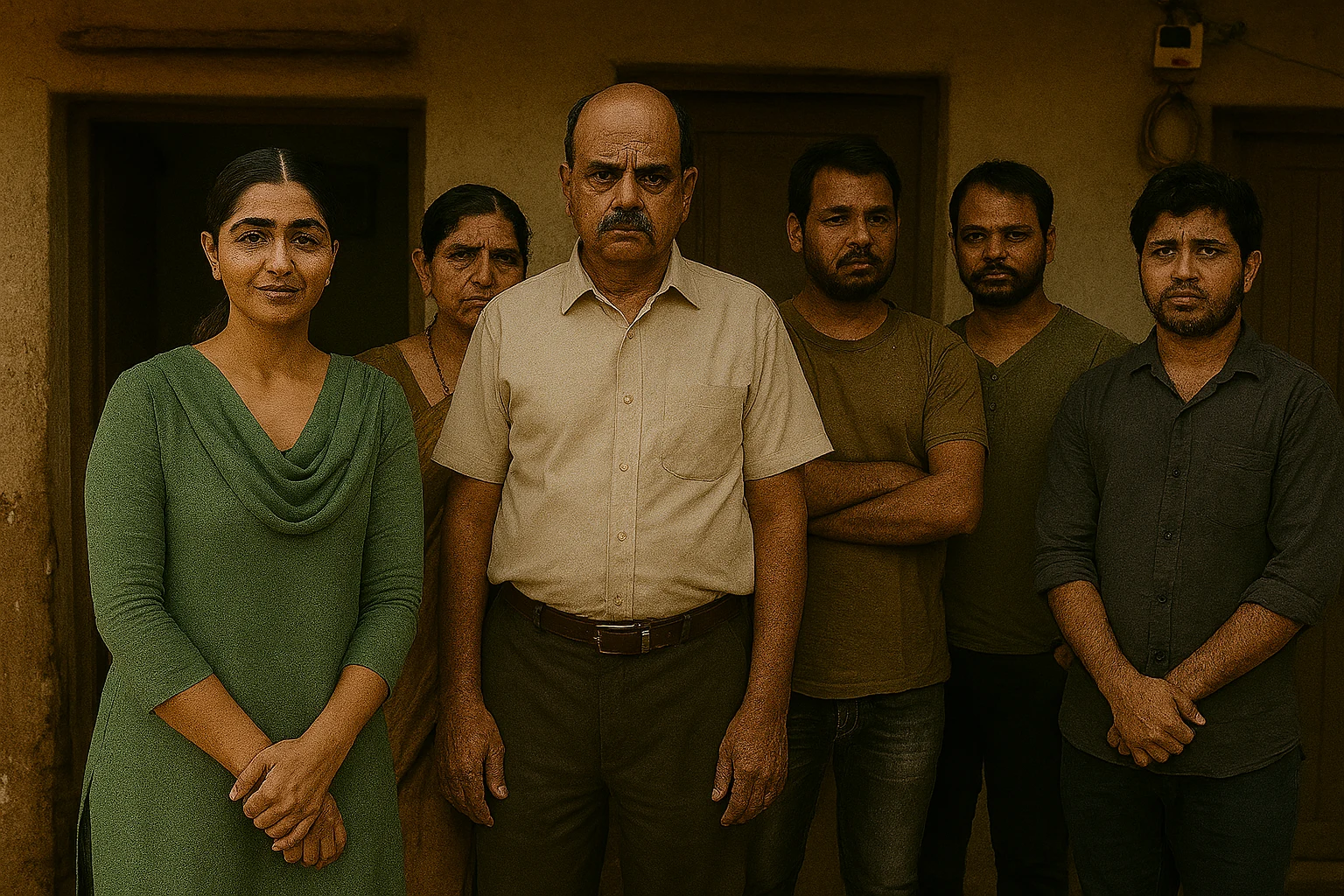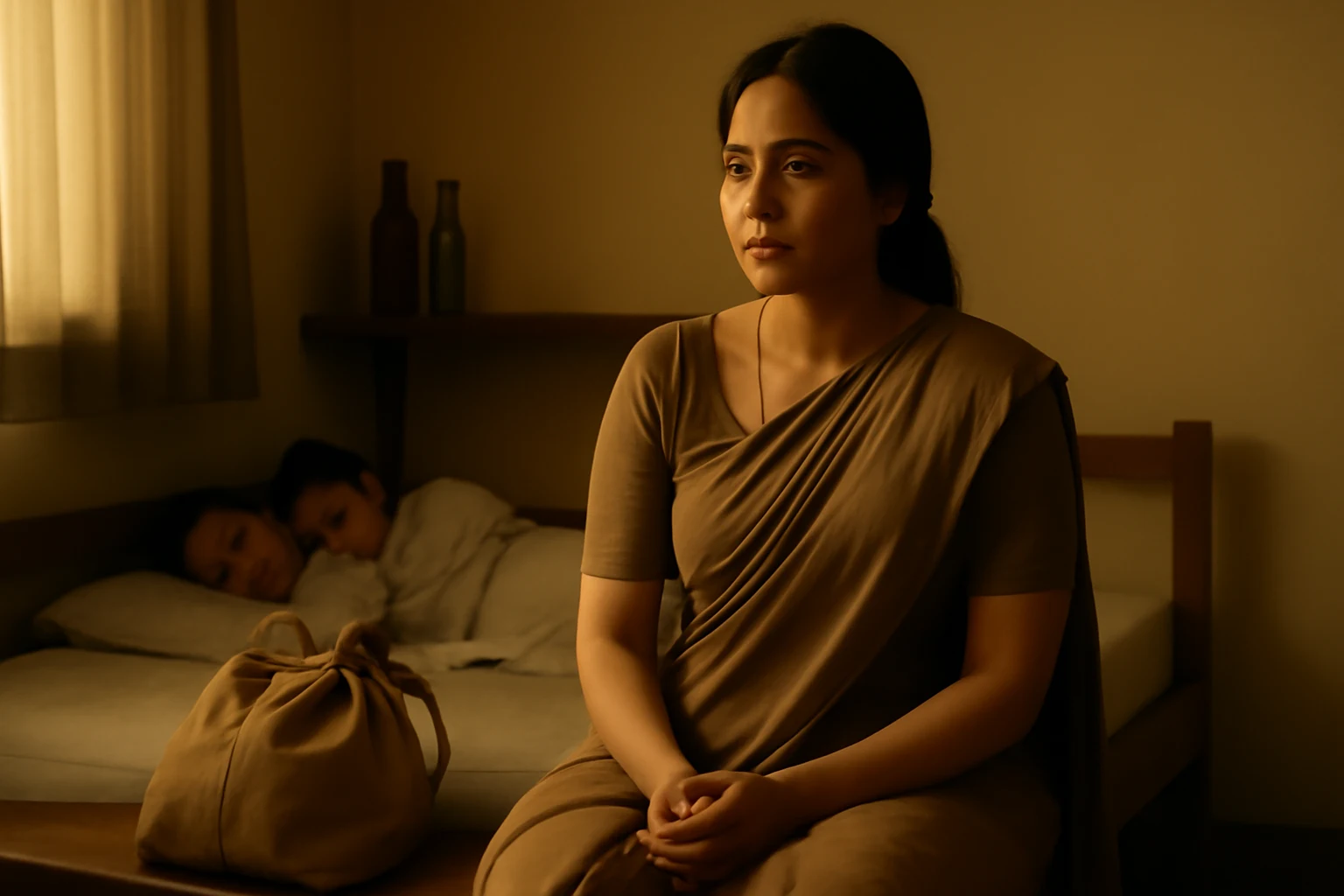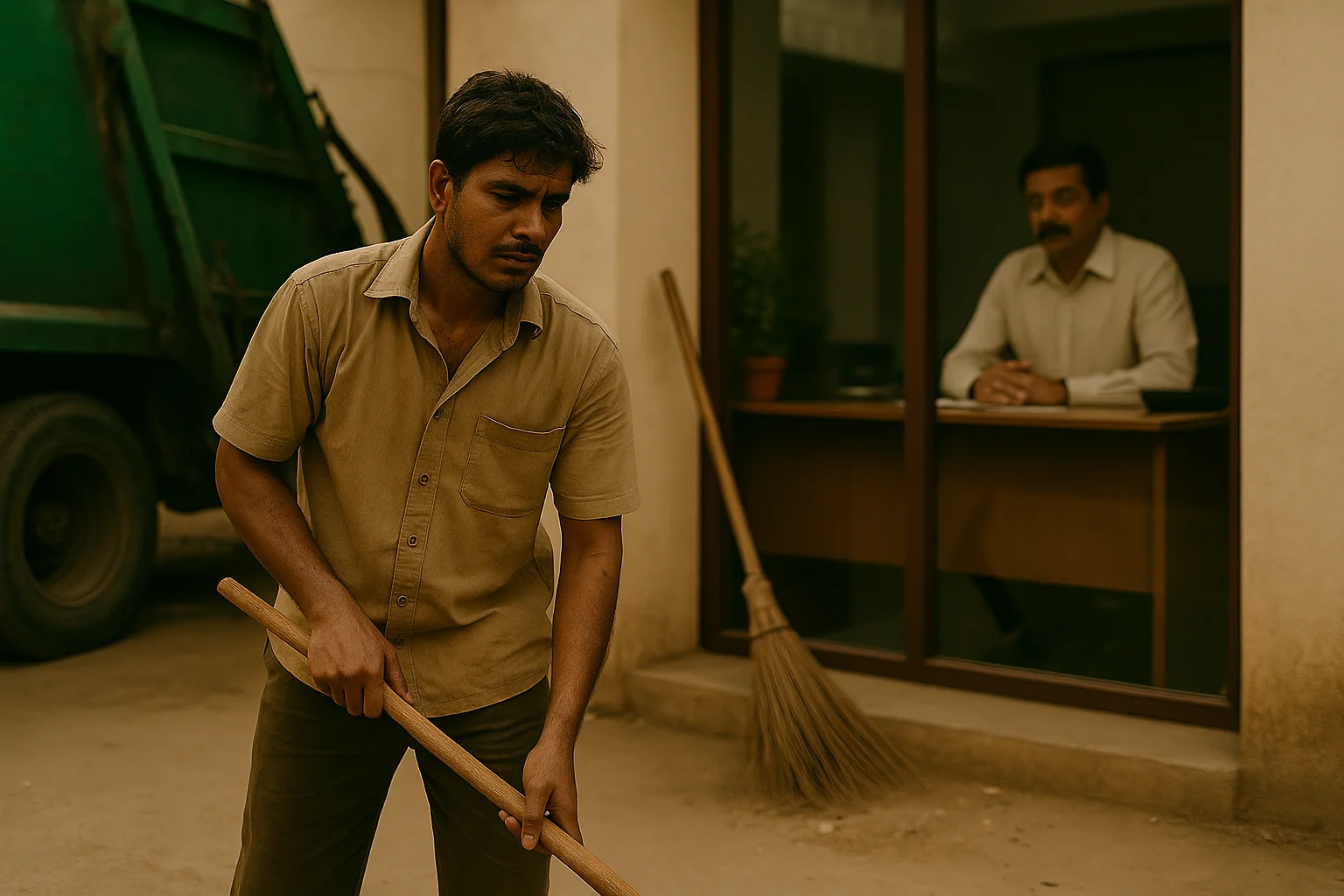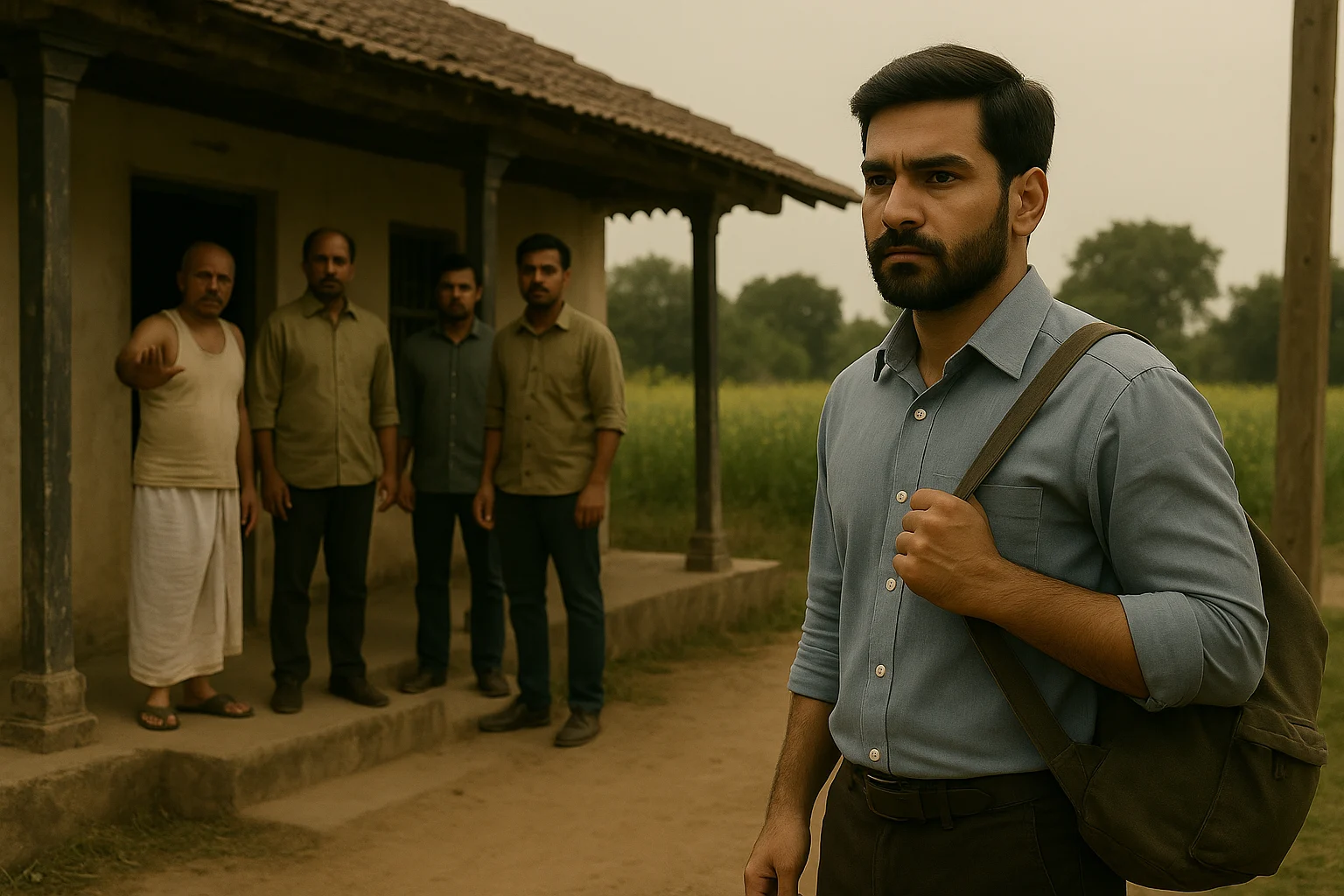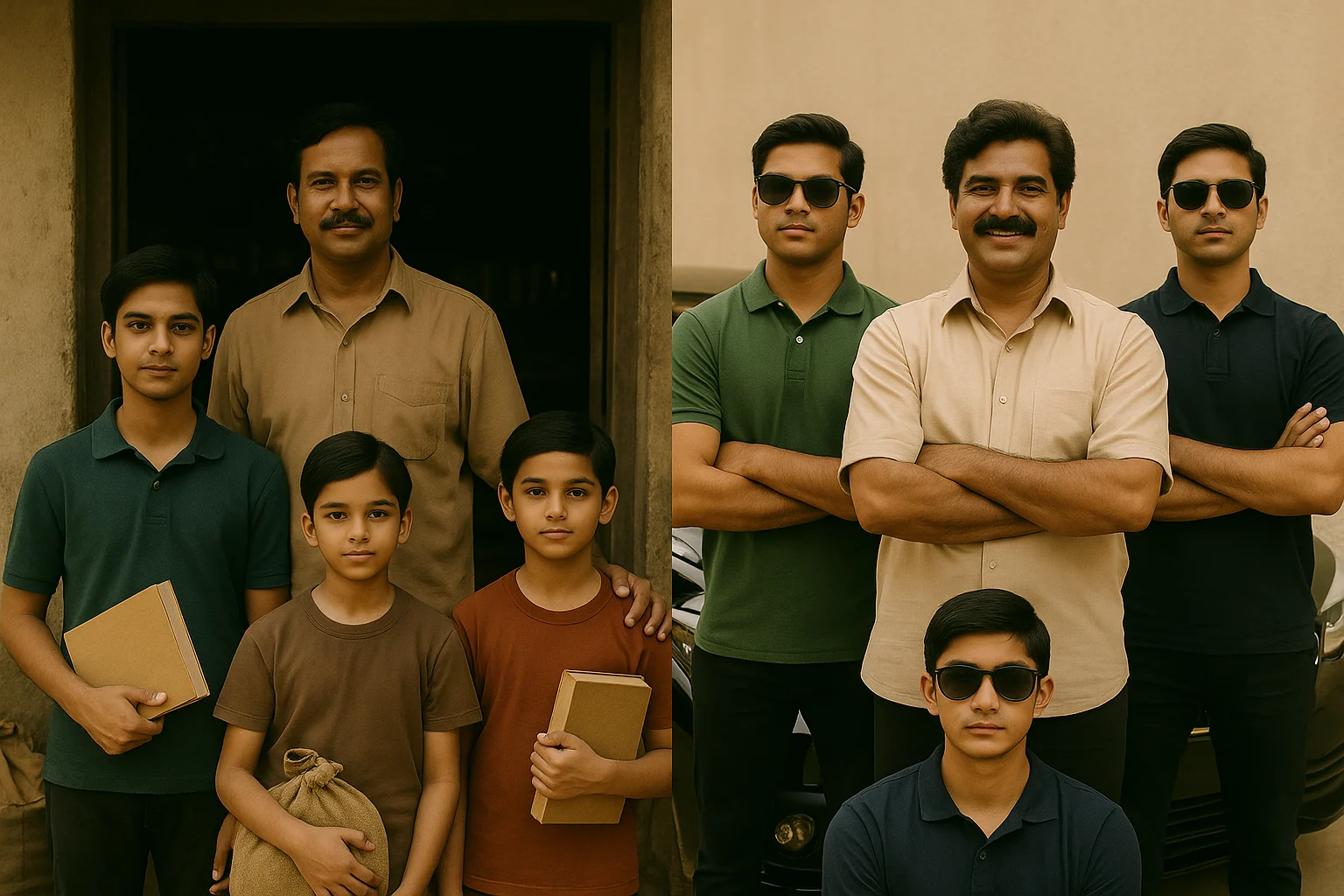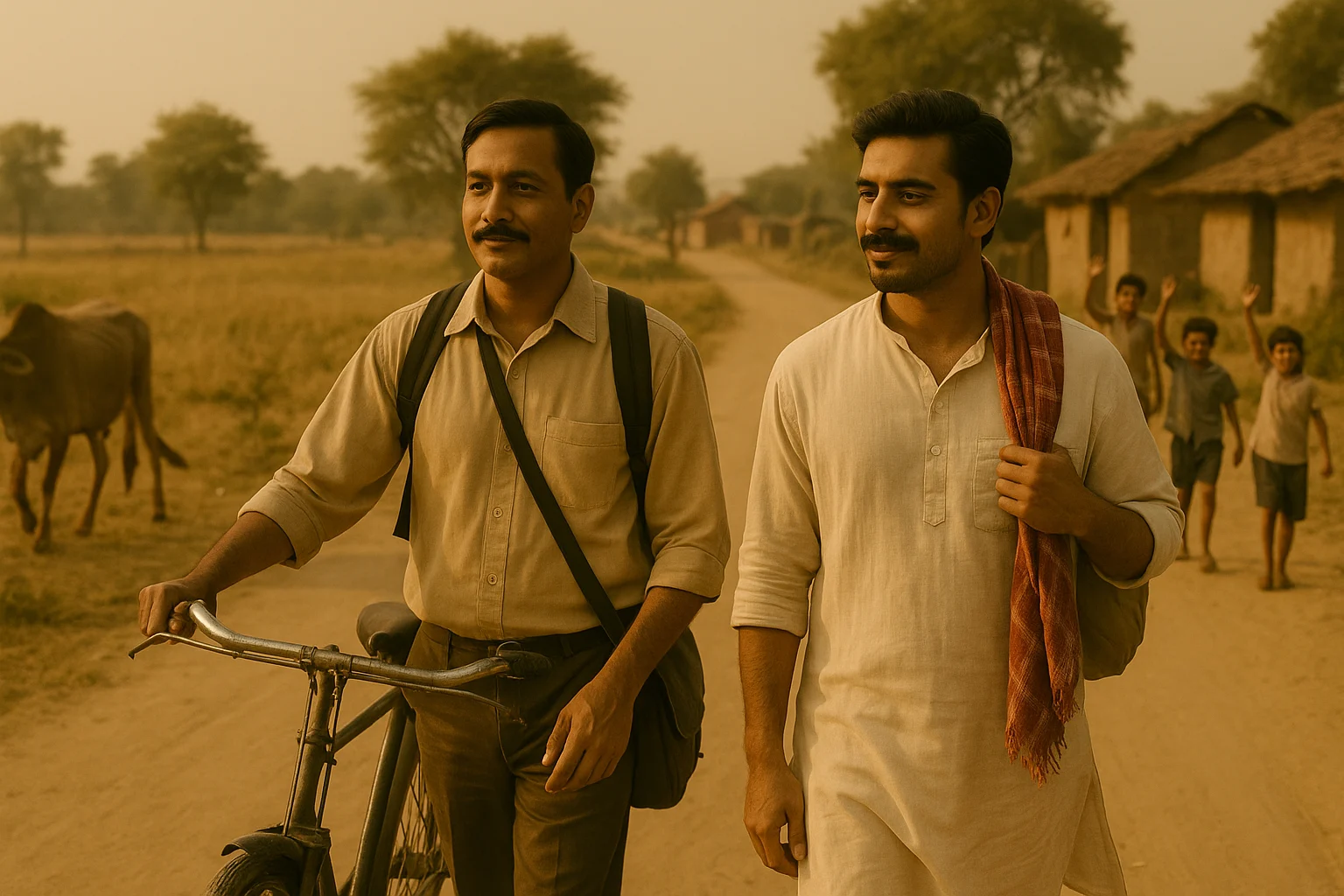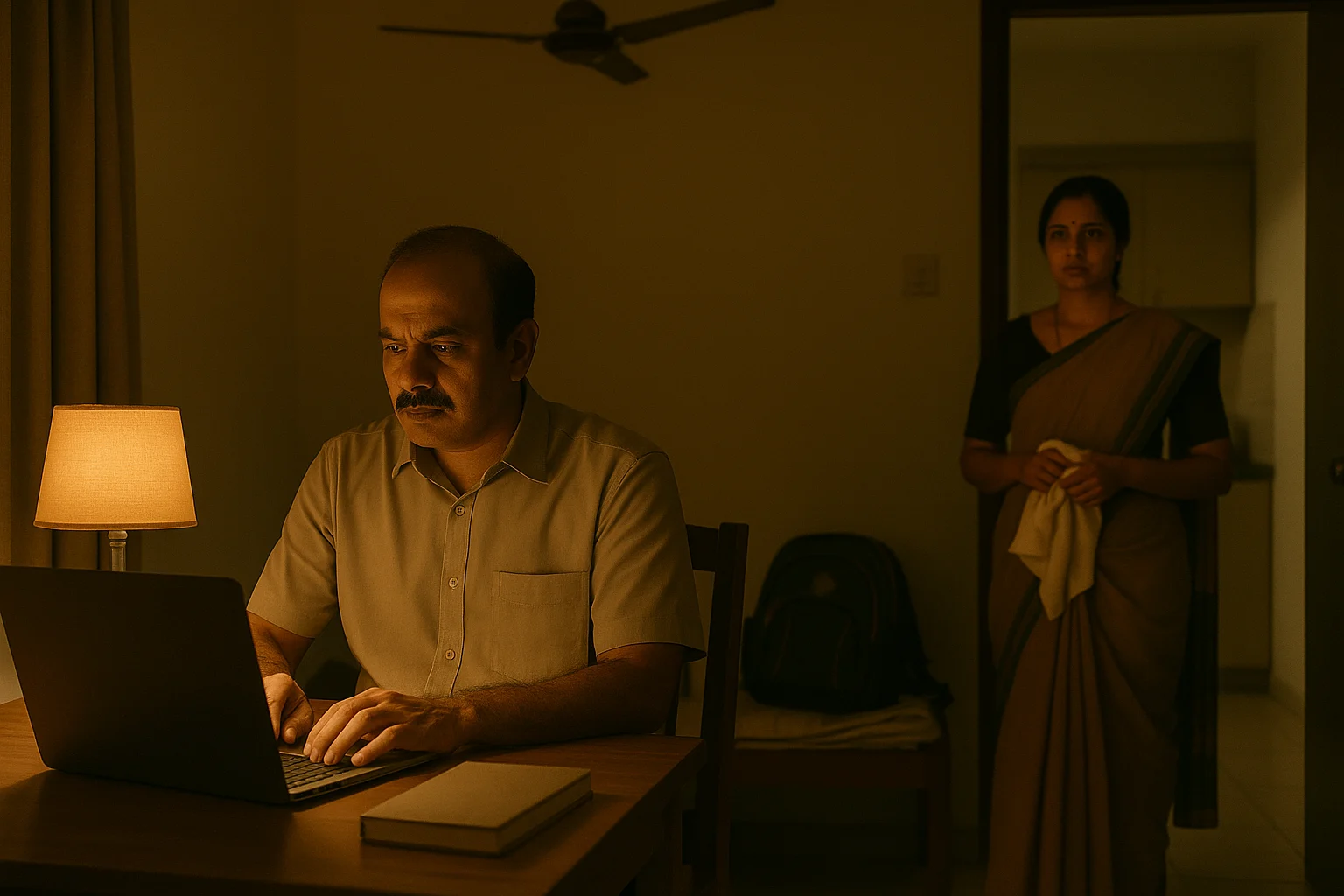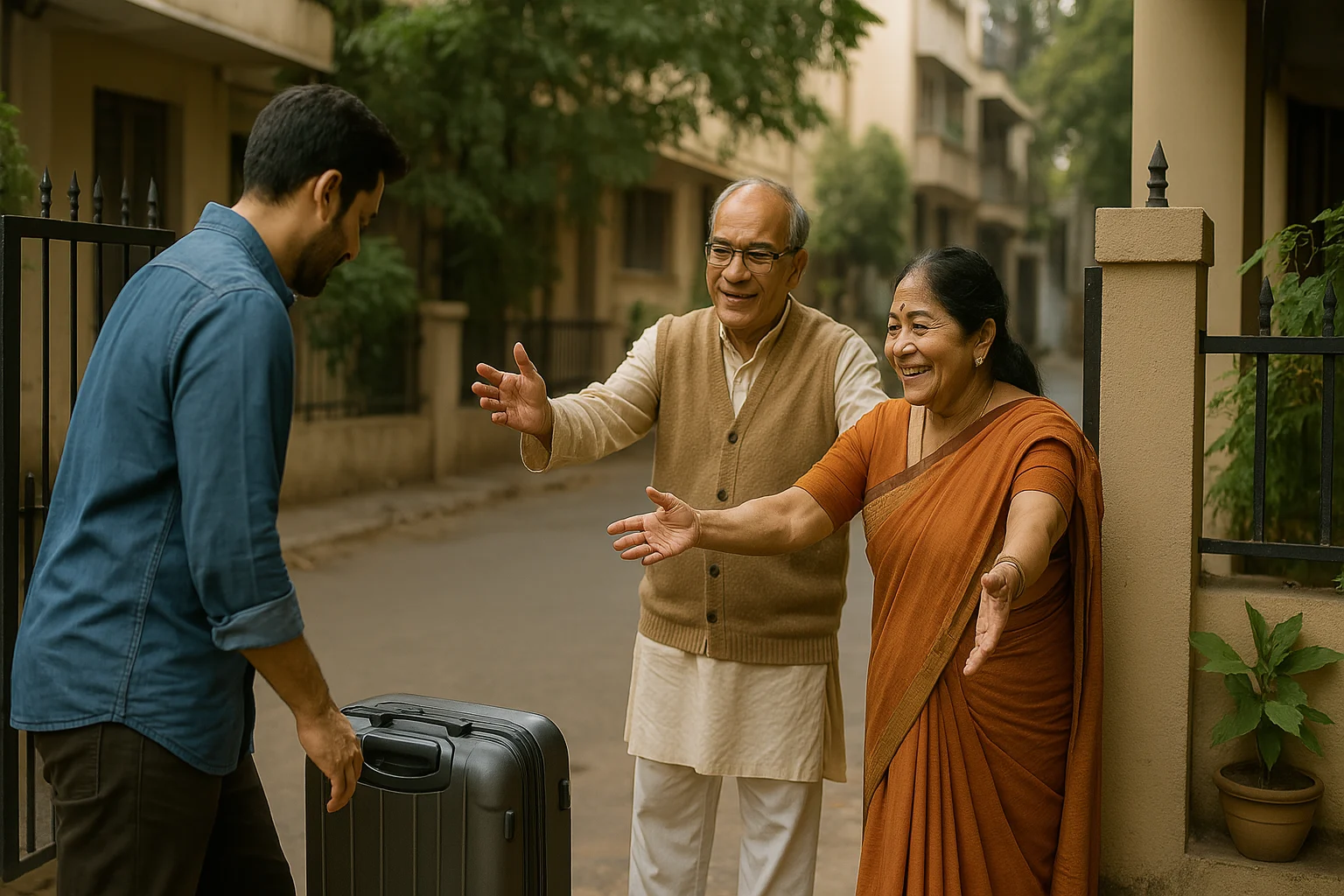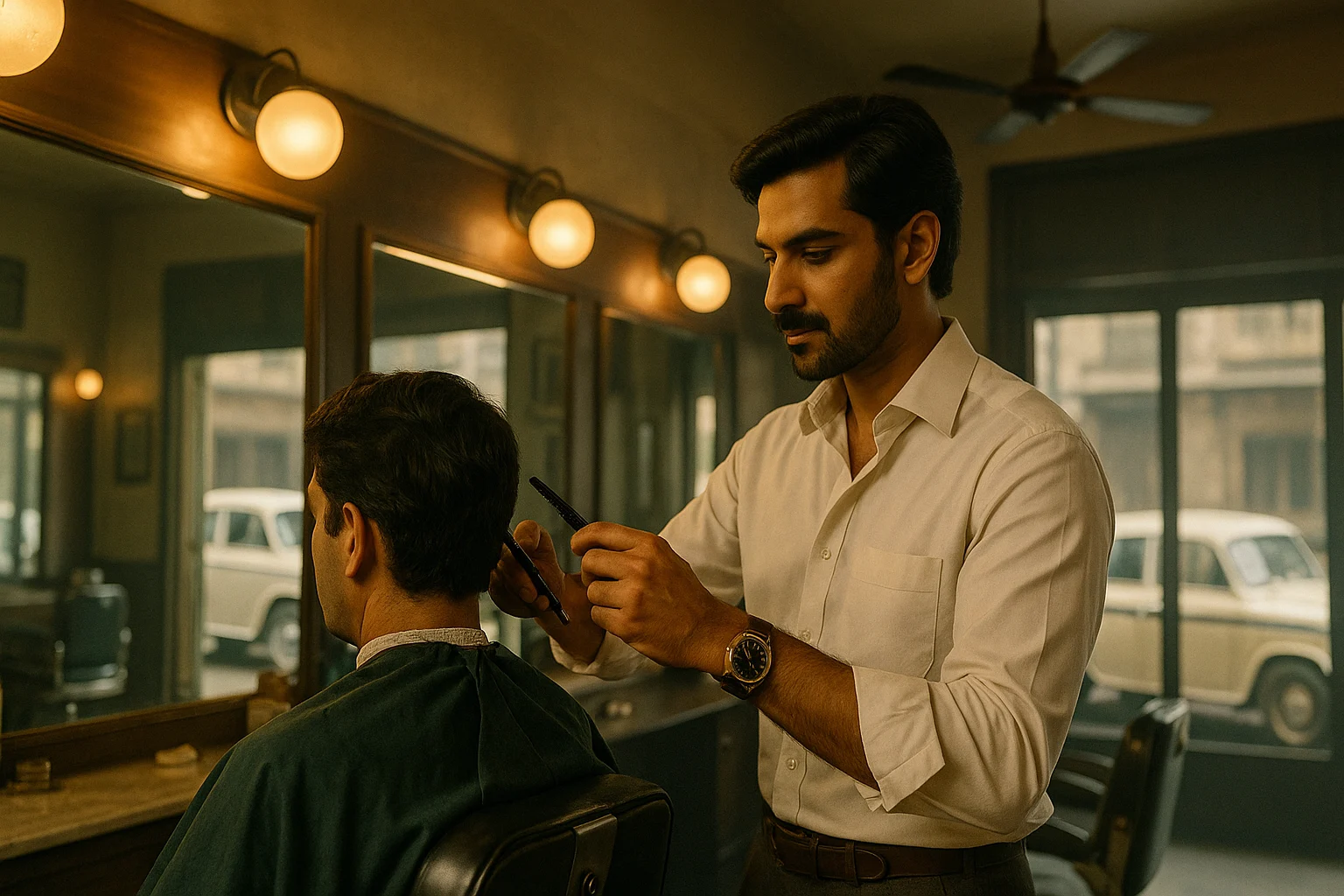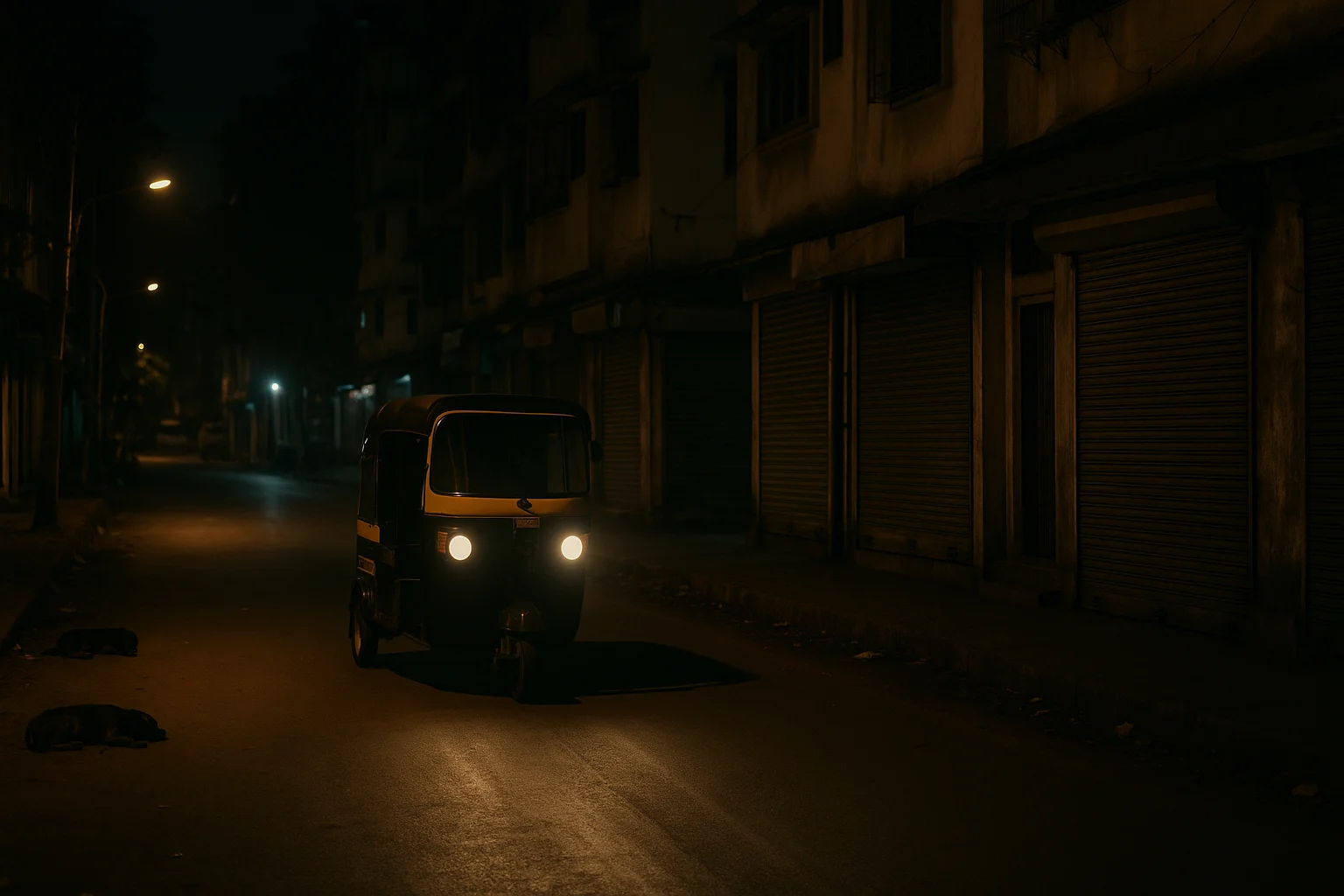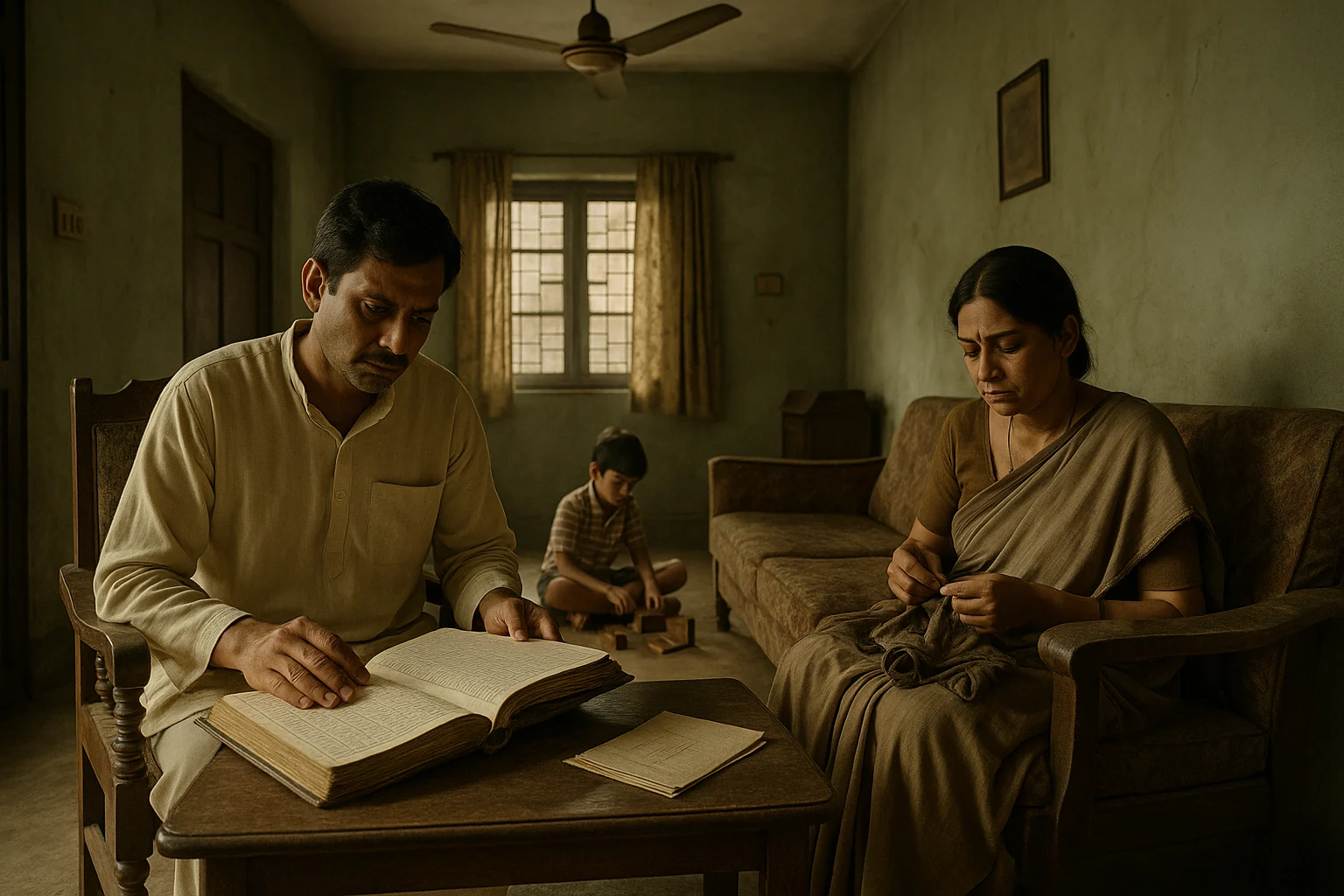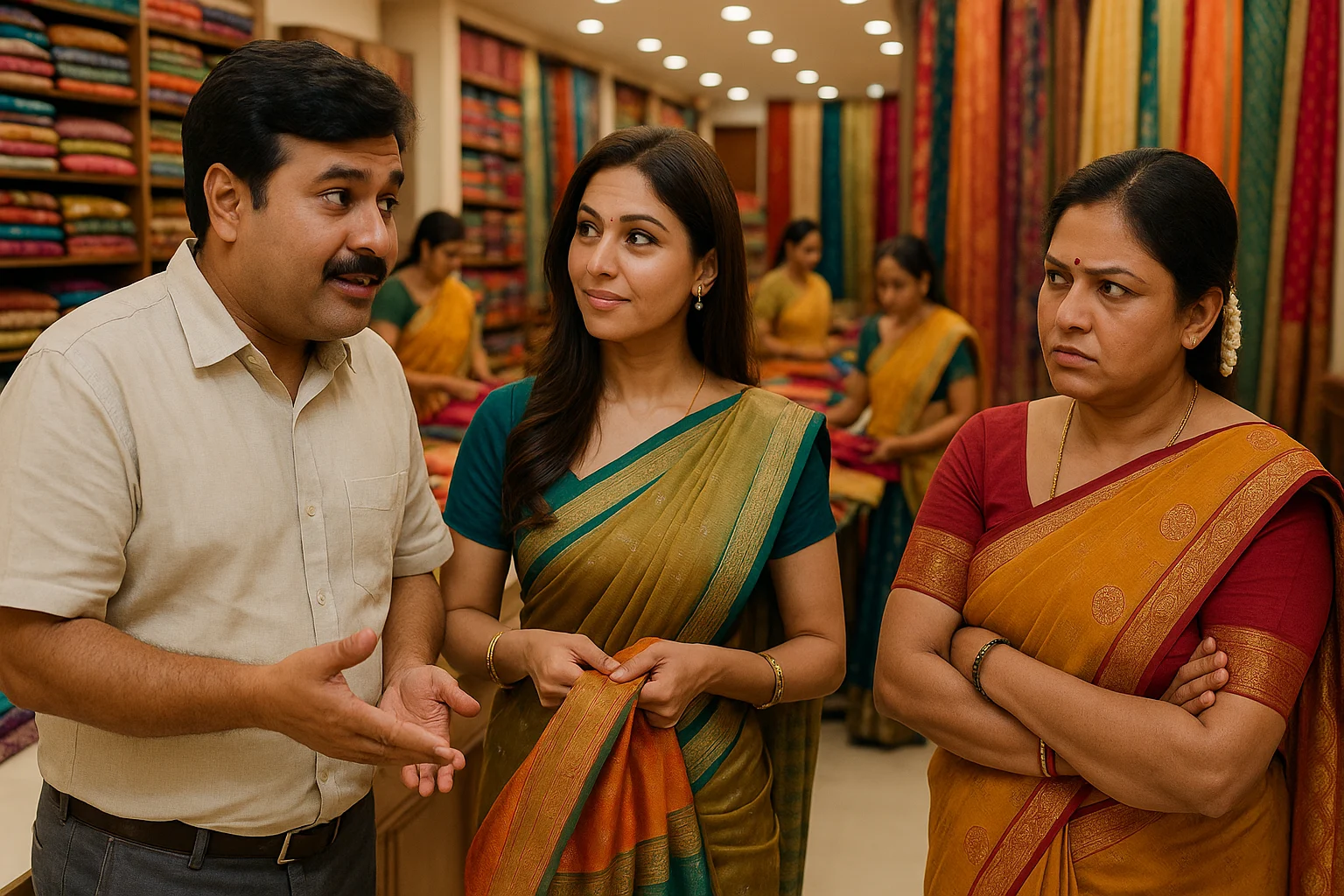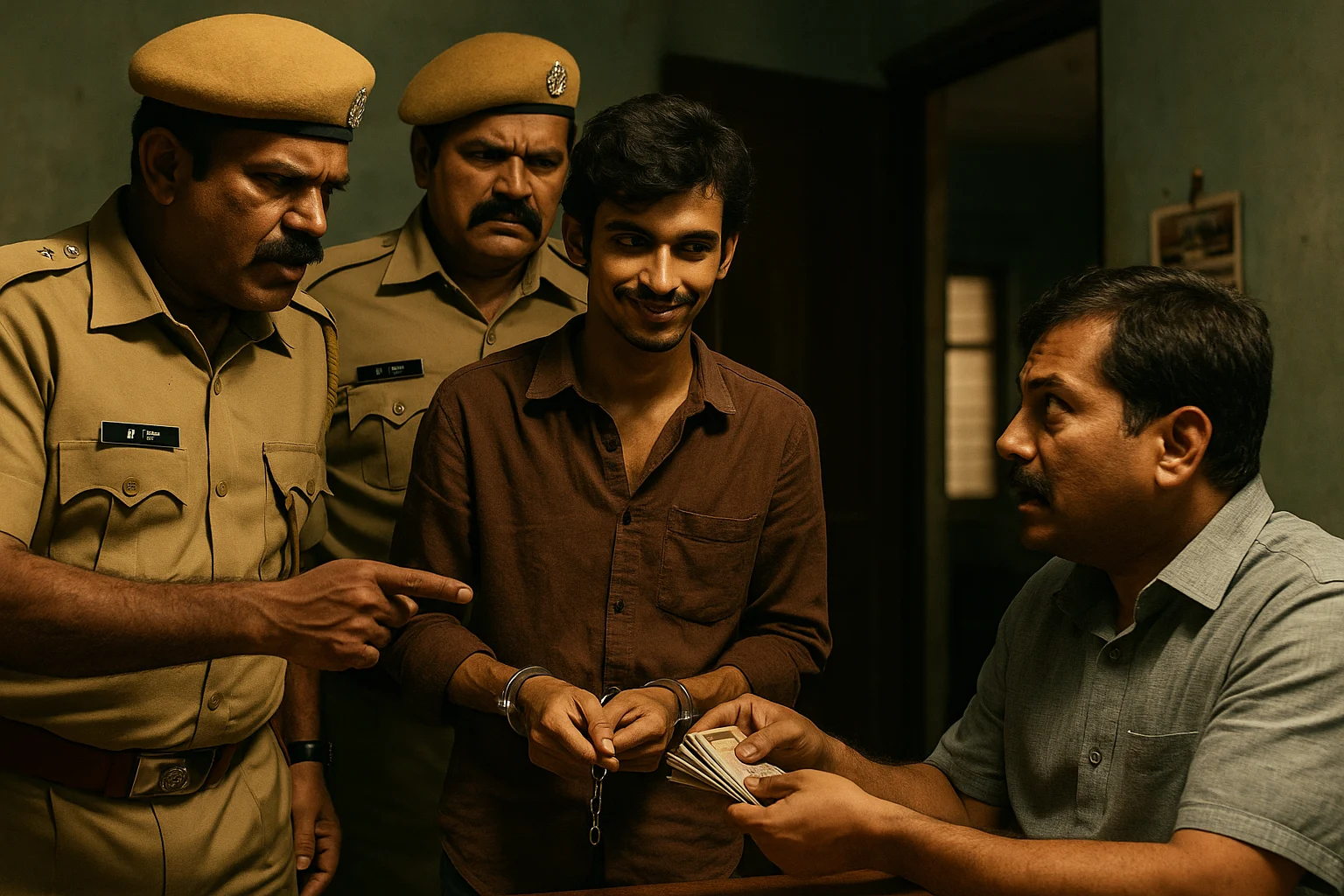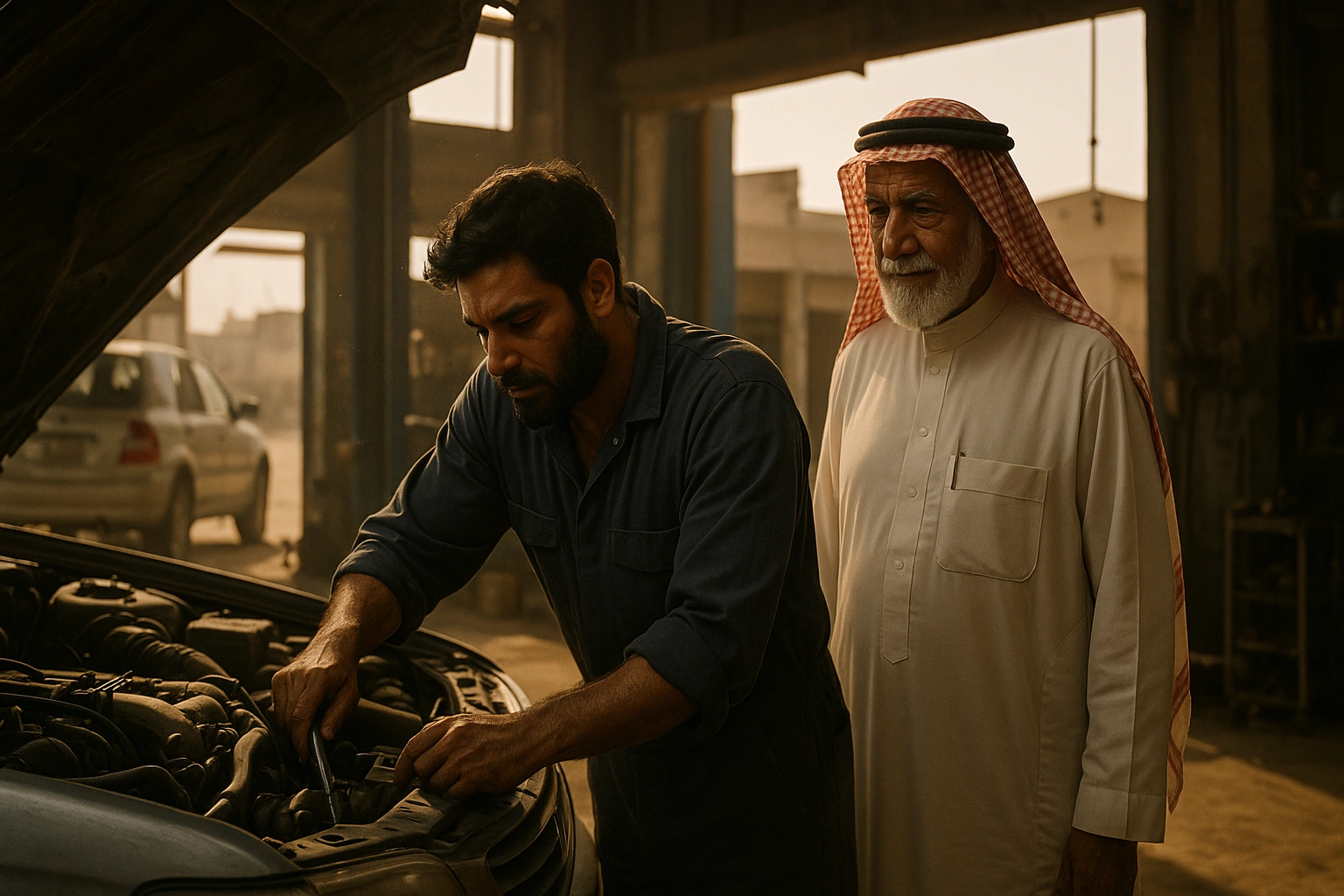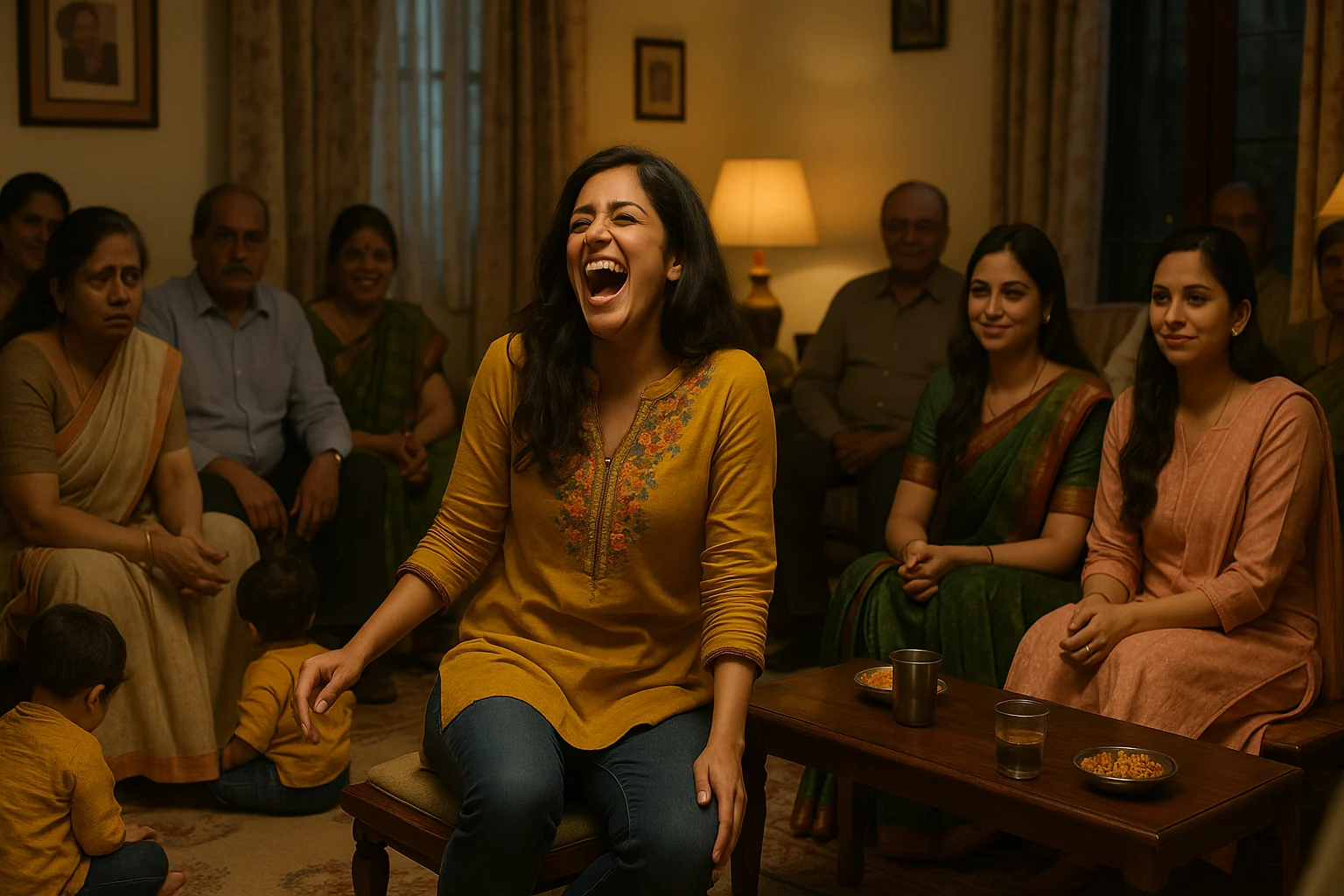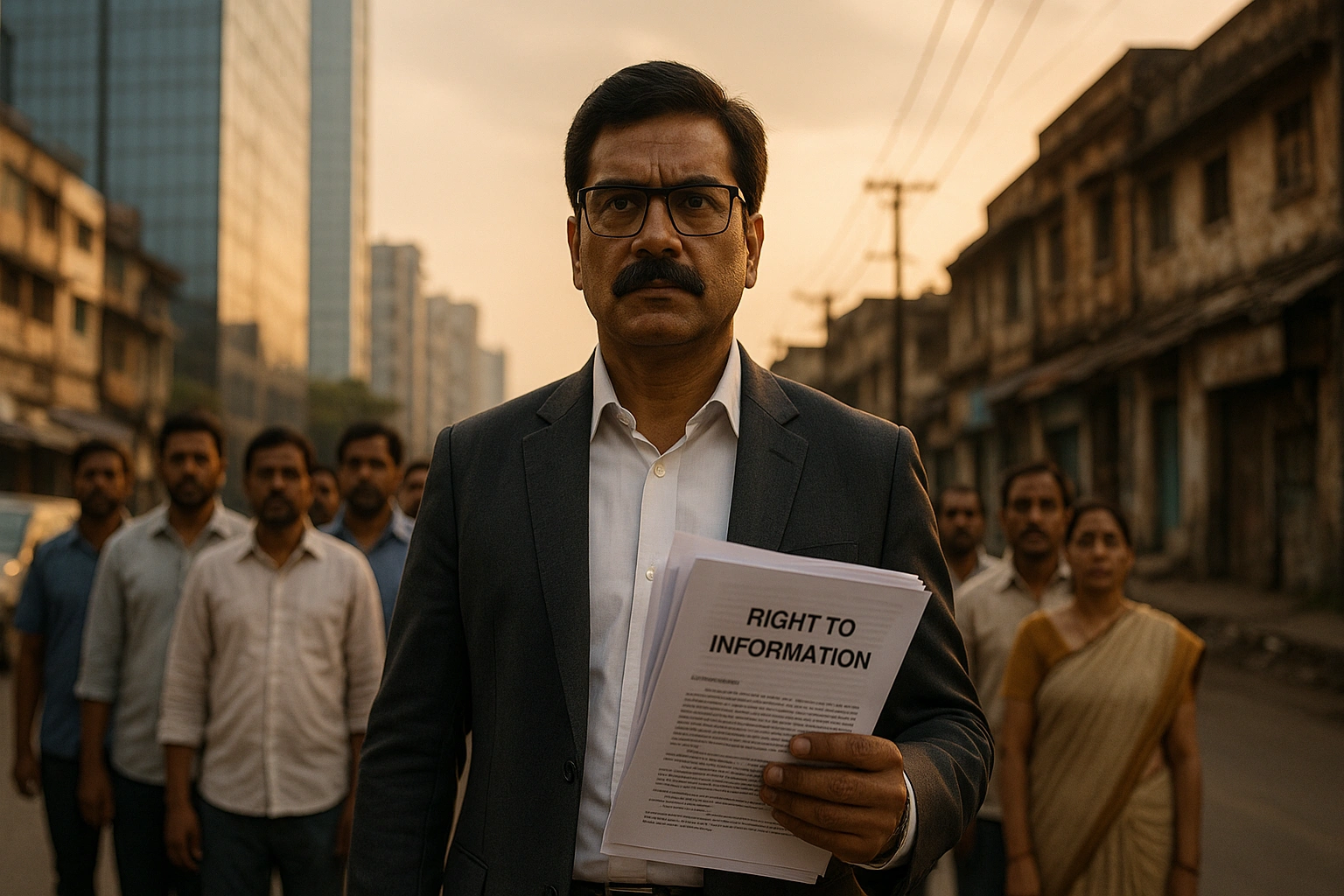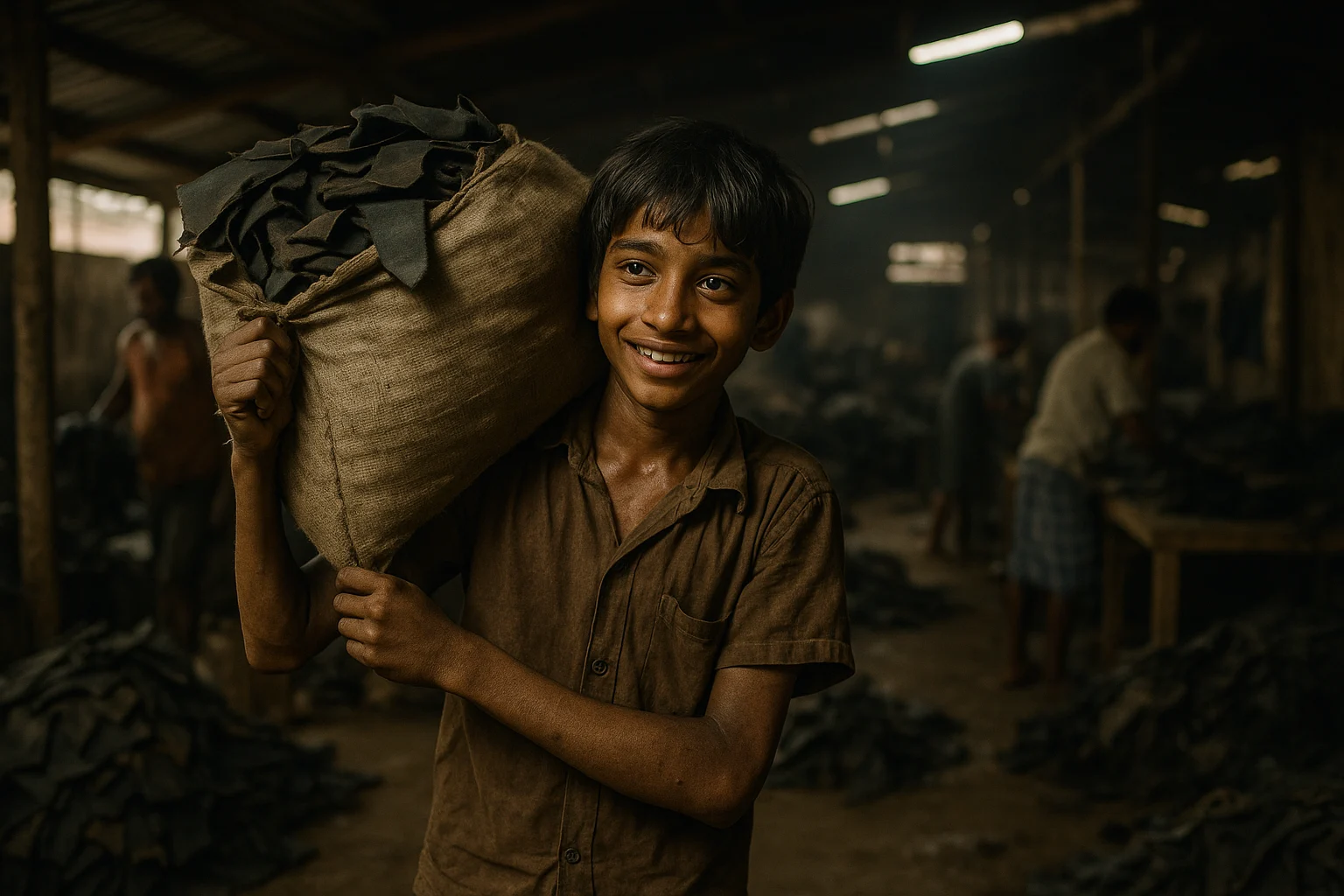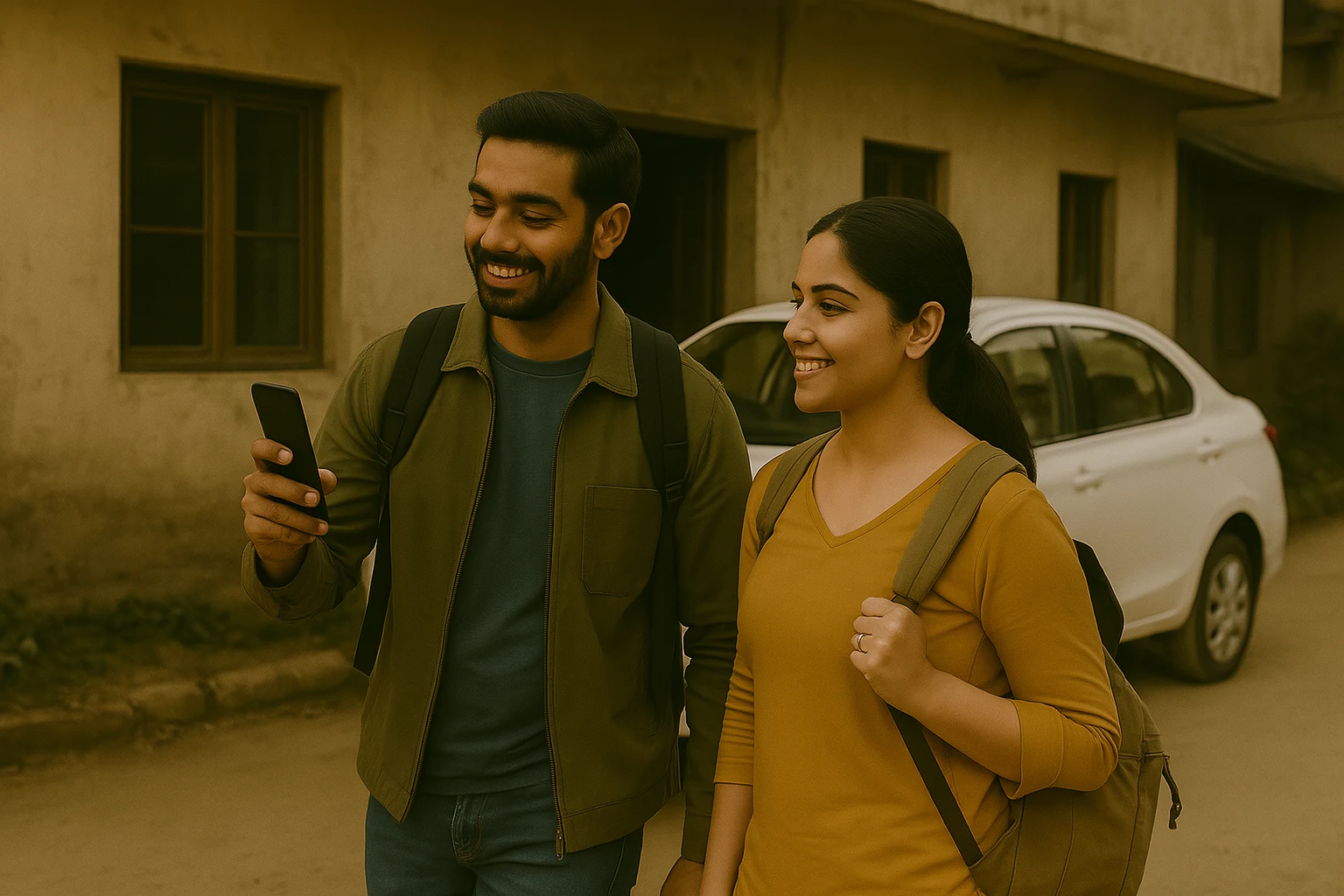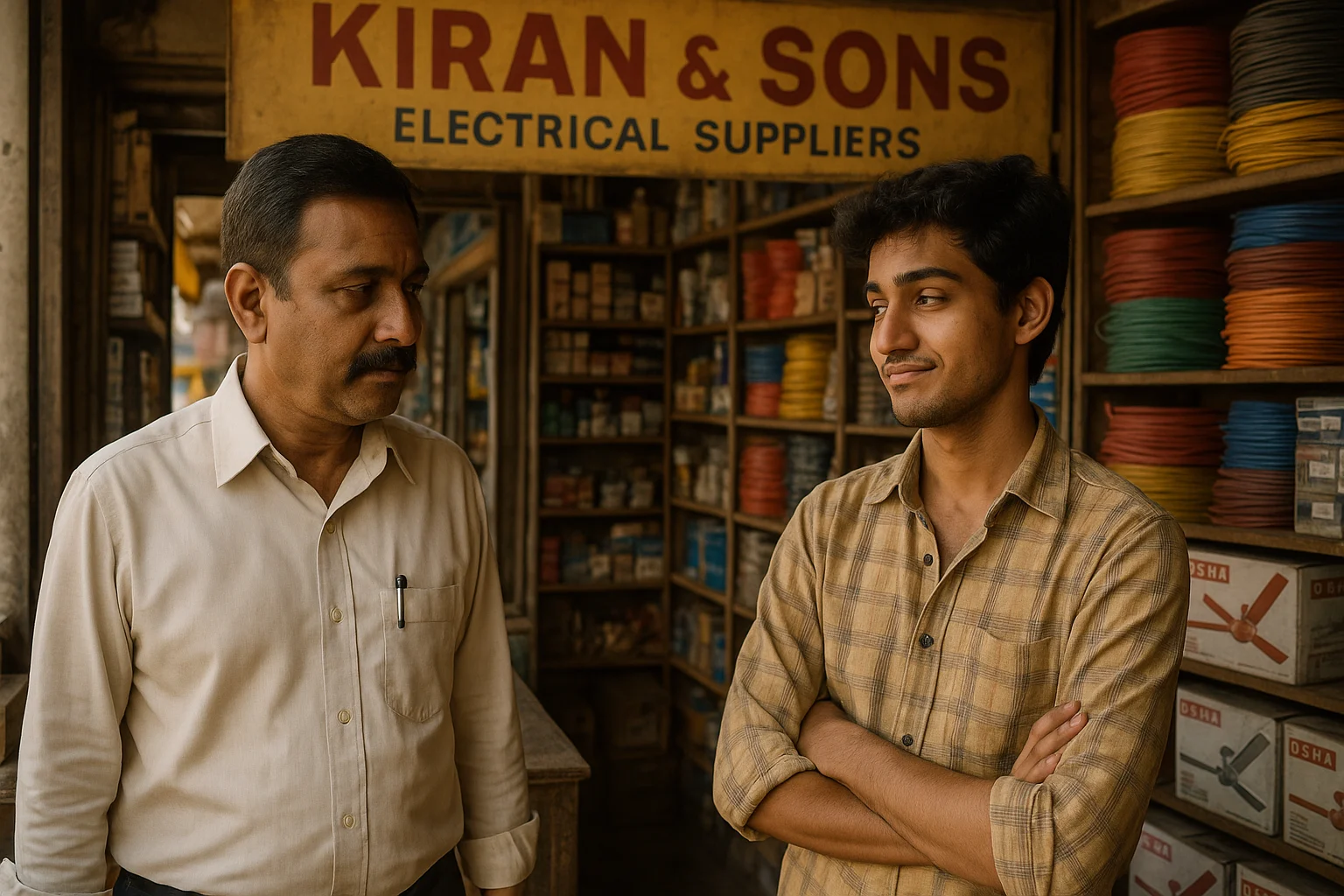Scene 1: Arrival in the City
A slow-moving train pulled into the station. Prakash jumped off, landing like a conqueror. Meena followed, cautious, her faded duffel bag slung over her shoulder, baby bump hidden under a loose kurta.
“Finally, Kolkata,” he said, adjusting his cap and squinting at the skyline. “This is where real people make real money.”
“And we’ll make it too, right?” Meena smiled, trying to sound hopeful.
He didn’t answer, already busy unwrapping a betel leaf and scanning for chai.

Scene 2: The First Job
Prakash got hired as a tempo driver. His job? Deliver light parcels, under 10 kilos. ₹500 a day.
Other drivers made ₹800, doing both transport and doorstep delivery.
“Why don’t you do full delivery, Prakash?” asked Ramesh, a senior driver. “It’s just a few steps extra, and ₹300 more!”
Prakash scoffed. “I’m not running a marathon for peanuts. ₹500 is enough.”
“But others—”
“I’m not others,” Prakash interrupted. “They don’t have my standards.”
The manager sighed. “You’re young, you’re healthy. Stop wasting your potential.”
“I have invisible health issues,” Prakash lied, patting his stomach. “My spine is sensitive to… stairs.”
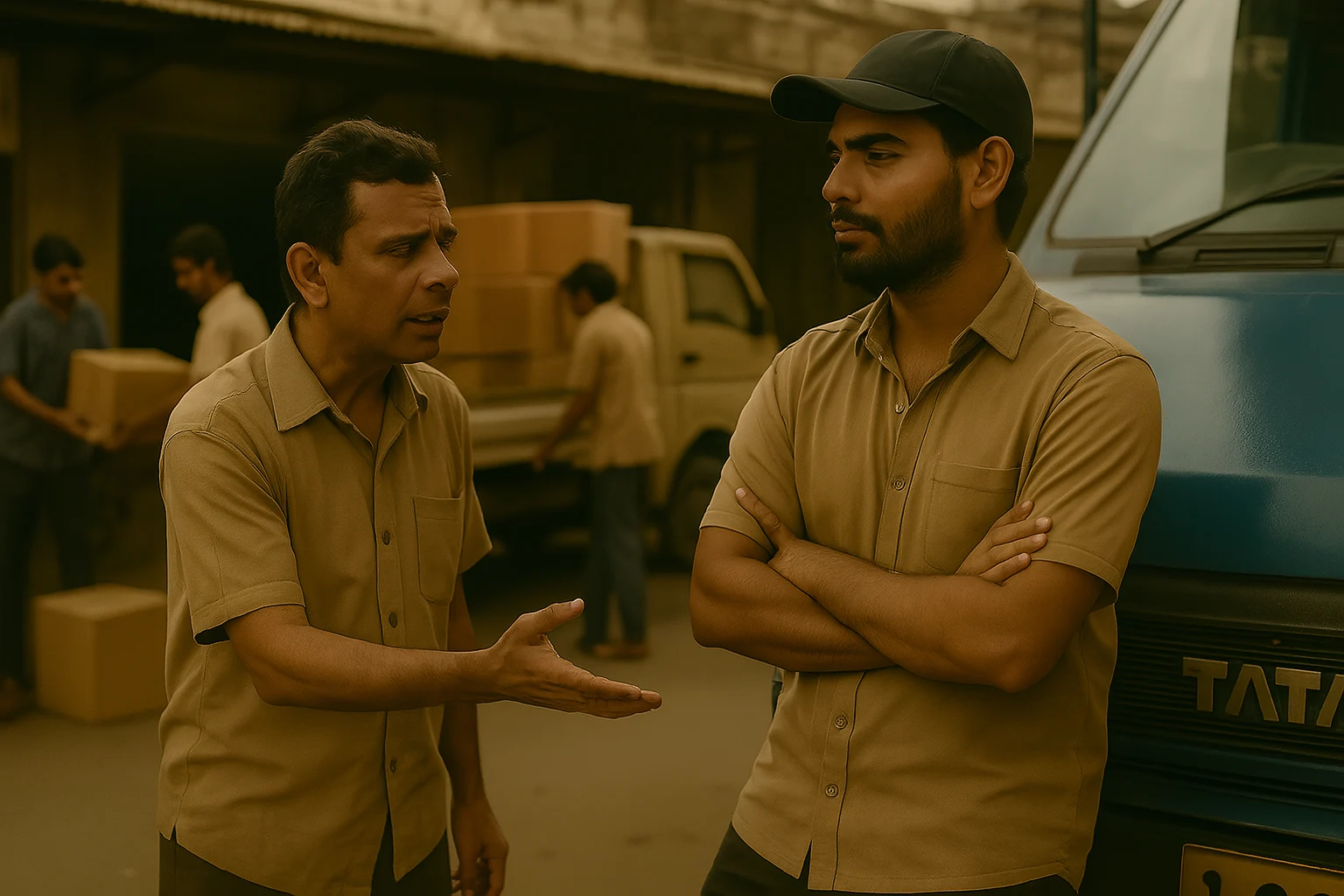
Scene 3: Settling Down
Their room had a fan that squeaked louder than it spun. Meena spent her days washing clothes by hand, cooking on a kerosene stove, and keeping track of every rupee.
“How much today?” she asked one night.
“Five hundred. Same as usual.”
“Everyone else is making eight hundred…”
“Don’t start again.”
“I’m just saying—our rent is ₹3500. Groceries are rising.”
“I’m not a machine,” he snapped. “Don’t expect me to become one just because you’re hormonal.”
Meena didn’t speak. She quietly folded his shirt, the only one without a hole.

Scene 4: The Company Crisis
A wave of driver resignations hit the company. Deliveries piled up.
Prakash saw his moment. “Double the pay. ₹700 per day. Just for driving, not delivery.”
The manager resisted, but gave in. “Fine. Only till we find others.”
Now earning more in fewer days, Prakash worked 20–22 days a month and took long breaks. He’d sit shirtless under the fan, watching Bhojpuri action films, belching loudly.
Meena noticed. “You’re earning more now. Why not work all 30 days and save?”
He looked offended. “Am I a donkey? Learn to live in peace, woman.”
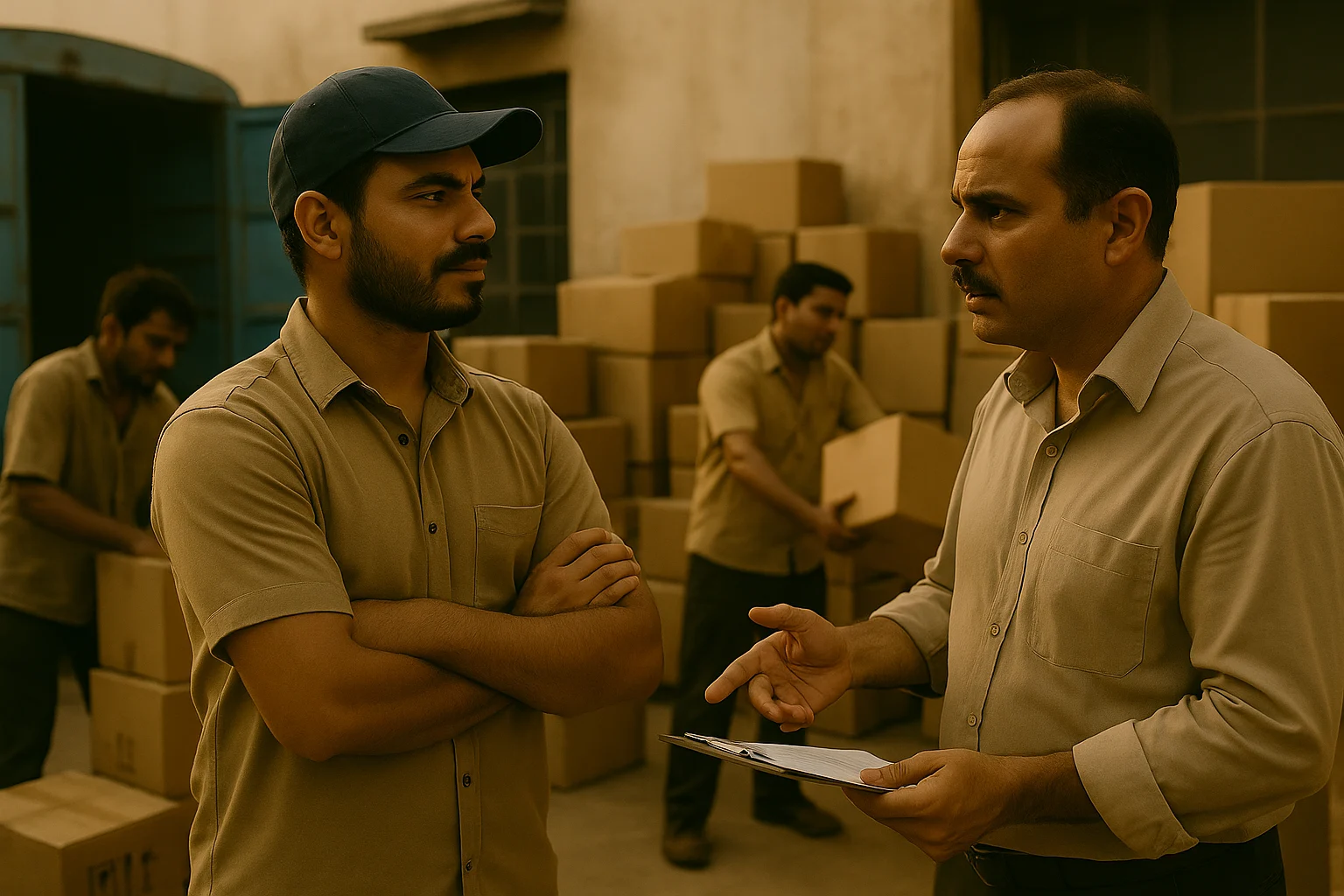
Scene 5: The Baby Arrives
Meena gave birth on a humid night in June. The fan didn’t work. The nurse was late. But when she saw her son’s face, all pain melted away.
Prakash was late, arriving in a sweat-stained shirt.
“He looks like me,” he beamed.
“No,” Meena whispered, “He deserves better.”
Expenses surged—milk, diapers, medicines.
“Start delivering, Prakash. Like others,” she begged.
“I’m not built for this,” he replied. “Stress gives me acidity. You want me dead?”
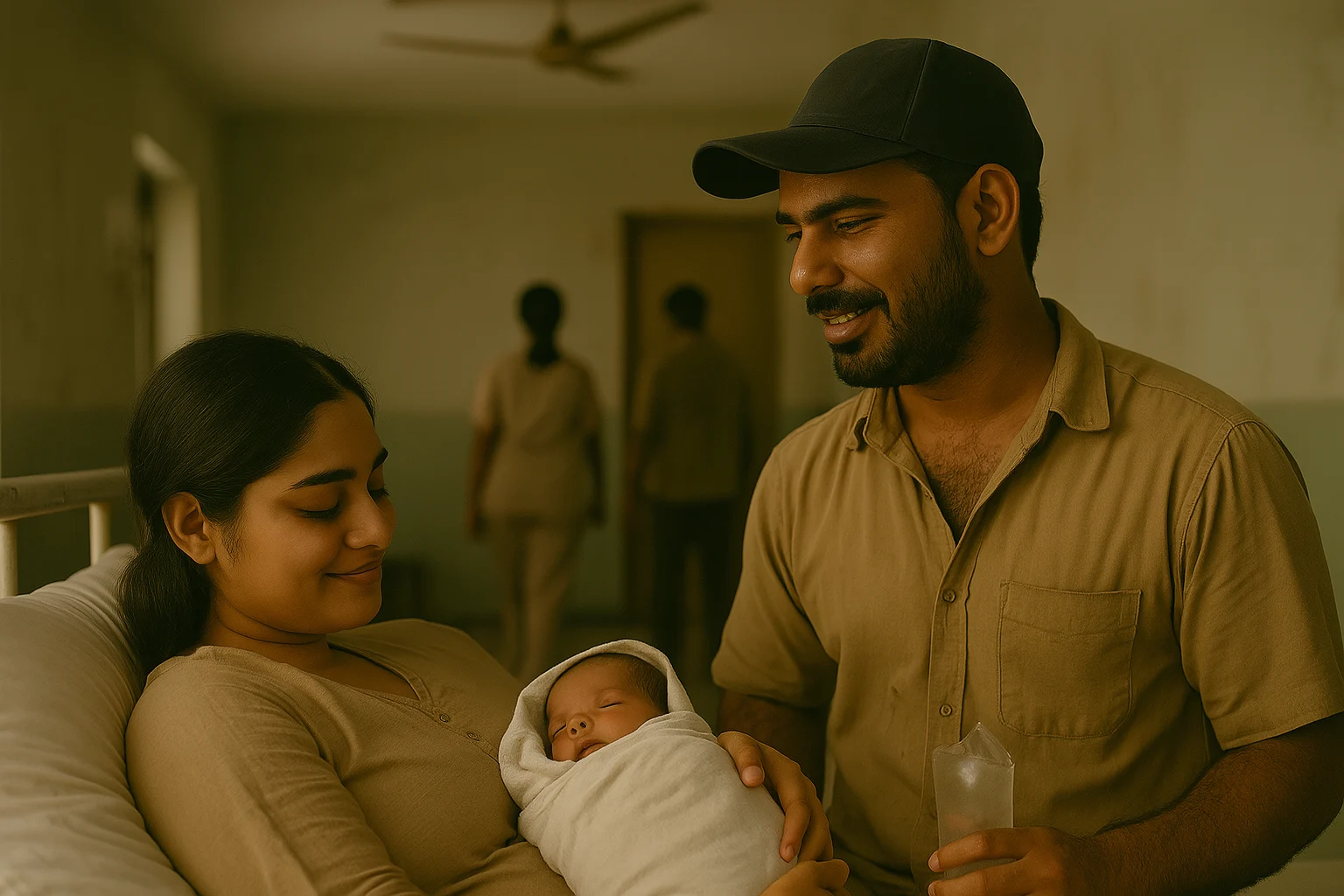
Scene 6: Meena’s Turn
Meena began giving tuition. One student turned into five. By the second month, she was earning ₹12,000.
She was tired, but proud.
“We can finally save,” she said.
But Prakash had other ideas.

Scene 7: The ‘Retirement’ Declaration
“I’ve retired,” Prakash declared.
“From what?” asked his chai-sipping friend.
“From the hustle. My wife’s earning now. Life is good.”
He began doing odd jobs—standing outside a hardware shop, pretending to guard it. Some days he made ₹200. Other days, he made excuses.
He even returned a scooter gifted by a neighbor to try food delivery.
“Too much helmet hair,” he claimed. “Not good for my self-image.”
Scene 8: Rock Bottom
Their fridge died. Rent was overdue. The baby had fever.
Meena sold her bangles for medicine.
She asked Prakash to go back to work. He refused.
Then, she walked to his old company.
“My husband… please give him his job back. He won’t listen to me.”
The manager, visibly moved, called Prakash.

Scene 9: The Call
“Prakash, come back. Your wife asked us.”
“Wife? Why would she do that?”
“You’re jobless. She’s struggling.”
“I’m not jobless,” he replied, chewing loudly. “I’m exploring independent ventures.”
“Like what?”
“Spiritual podcasts… home farming… things you wouldn’t understand.”
He hung up and went back to watching wrestling.
Scene 10: The Child Speaks
“Mumma,” he said softly.
“Yes, beta?”
“When I grow up, I’ll buy you a big fan. And milk. And I’ll go to work. Like you.”
Her hands stopped moving. Chalk dropped. She bent down and hugged him tight.
From the window, they could see Prakash napping with his belly exposed, a fly buzzing near his half-eaten banana.
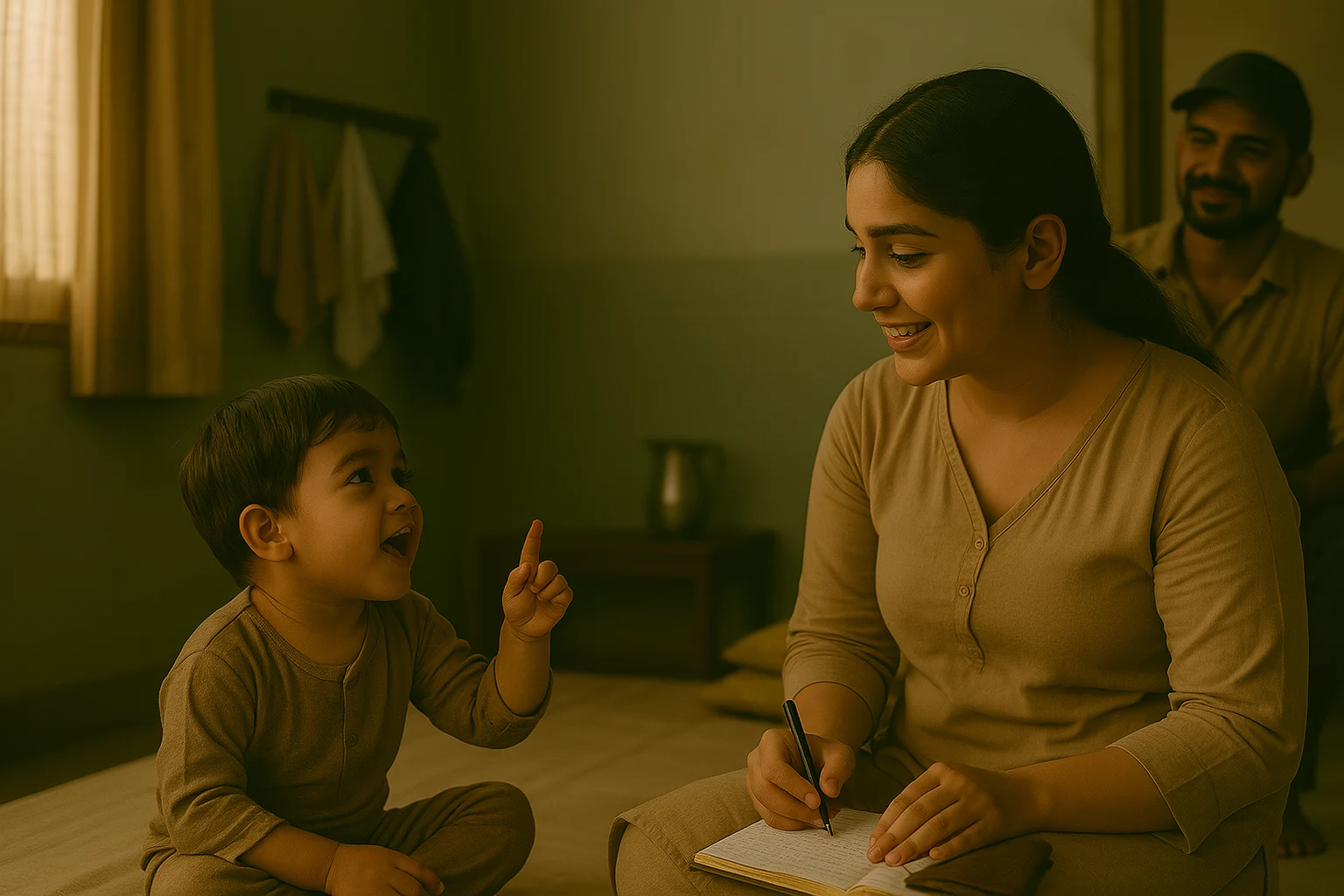
Scene 11: Epilogue
Meena now had 18 students. She had shifted to a slightly better house. She had also started teaching online.
Prakash still refused work, occasionally running errands for ₹100.
One day, their son returned from school with a drawing — a picture of “Mumma teaching kids.”
“Where’s Papa in this?” she asked.
The boy scratched his head. “Oh. I forgot to draw him. Maybe he’s sleeping again.”

Moral of the Story:
You don’t need a heavy load to be crushed—sometimes, it’s the weight you refuse to carry that breaks a family.
Receive Stories and Articles in your Inbox!
We won’t send any promotional or spam emails.
